From 9 Activists to a Worldwide LGBTI Movement
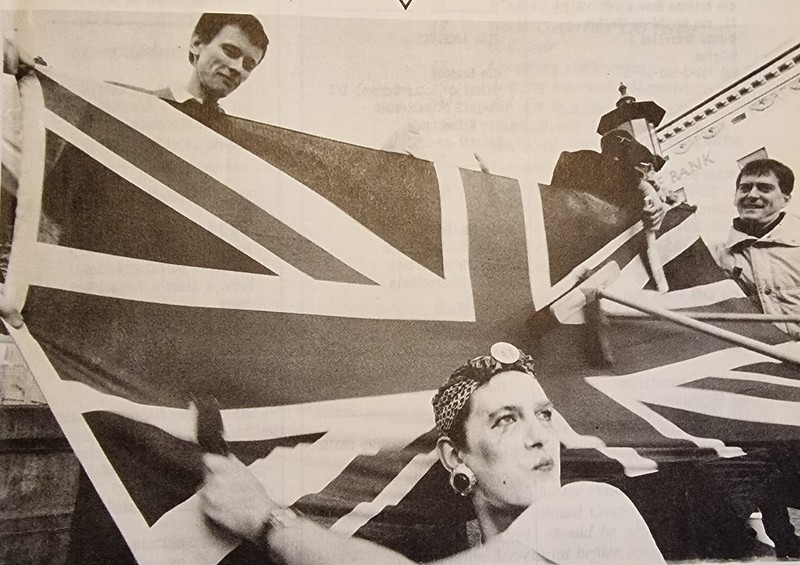
A newly released archive of over 2,000 photographs charts a journey that grew from a small meeting of activists in the UK almost 50 years ago to an international LGBTI movement still striding forward for human rights and equality today.
In 1978, a pivotal moment in LGBTI history unfolded in the United Kingdom, when activists from nine countries gathered in the city of Coventry to establish the International Gay Association (IGA), launching a coordinated global effort for LGBTI rights. Acting on the need for a dedicated space for lesbian activism, the International Lesbian Information Service (ILIS) was founded in 1980. Over time, IGA evolved to become the International Lesbian, Gay, Bisexual, Trans and Intersex Association (ILGA), integrating broader identities into its advocacy. In 1996, ILGA-Europe was established as its regional branch, responding to the distinct political and legal landscapes of the European movement.
The ILGA & ILIS History Collection, meticulously curated by long-time activist Nigel Warner, offers a profound insight into these formative years of the LGBTI movement. Nigel’s dedication to documenting and preserving this history stems from his deep ties to ILGA, where he served in various roles, including overseeing its finances from 1987 to 1994. He also served in ILGA-Europe, as board member and treasurer from 2000 to 2005, and as our representative at the Council of Europe from 1998 to 2018.
Comprising over 2,000 photographs contributed by 80 activists, the collection documents significant events and themes from 1978 through the 1990s. It not only shows the public demonstrations and conferences but also provides contextual information, including contemporary documentation and personal accounts, painting a comprehensive picture of the early international LGBTI movement.
Today, as we witness a resurgence of right-wing ideologies and policies threatening LGBTI rights on an international scale, this collection serves as a poignant reminder of our community’s resilience. The challenges we face are formidable, with countries electing openly LGBTI-phobic leaders, and enacting laws that roll back hard-won rights. Yet, the history captured in these photographs reminds us that the movement has weathered significant adversities before.
The ILGA & ILIS History Collection stands as a testament to the power of solidarity, courage, and unwavering commitment. And if we remember our past, we can inform our present and inspire our future. As we navigate the current challenges, let this collection be a source of strength and a reminder that, together, we can overcome adversity and continue the march toward equality.
Explore the ILGA & ILIS History Collection and join us in honouring the legacy of those who paved the way for the rights we uphold today.
How BIPOC queer activists are using artivism as resistance
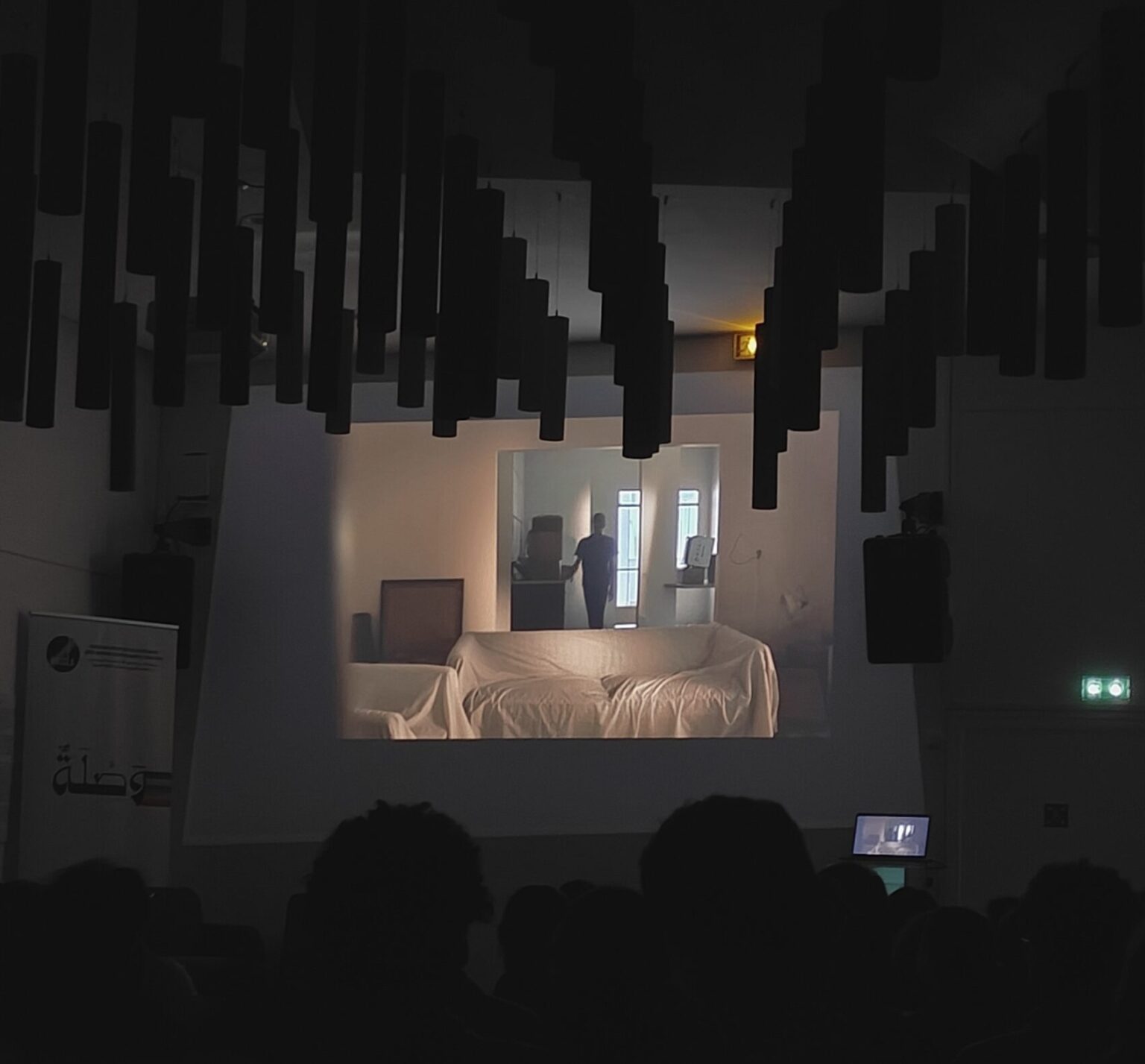
Art has always been a powerful tool of resistance, allowing the oppressed to share their truths and experiences. For many Black, Indigenous, or People of Colour (BIPOC1) LGBTI activists, it is more than expression—it’s a survival tool, a way to build community, a political statement, and a means to reclaim joy.
With this new blog series, we’re sharing insights from the work of LGBTI organisations tackling injustice, racism, and the unique challenges faced by racialised LGBTI communities in Europe. We hope their stories and practices will inspire and resonate. We believe that solutions and approaches that include a few will pave the way and point to the solutions for many. You can read the previous blog in the series here.
Across Europe, LGBTI collectives are harnessing film, music, poetry, and performance to tell their stories, connect with others, and challenge dominant narratives. In today’s blog, we explore how four different racialised queer groups use art in their activism.
Wassla Ciné Queer: Film as a lifeline
For Wassla, a queer cultural organisation based in Paris that works with migrants, film is more than entertainment – it is a lifeline. Their initiative, Ciné Queer, curates short and feature-length movies directed by Arab filmmakers that explore LGBTQIA+ experiences in Arabic-speaking communities. More than just screenings, these events spark critical conversations. Often followed by discussions with directors, the gatherings create a space where people can process what they see on screen, debate social issues, and reflect on their own realities.
At Wassla, there is no distinction between volunteers and participants; everyone plays a role in shaping the community. Many of their screenings feature works by their own members, amplifying voices that might otherwise remain unheard. With audiences sometimes reaching 80 people or more, Ciné Queer combats isolation and fosters solidarity in a safe and empowering space. For Wassla, film is not just about representation, it is about connection, healing, and breaking the silence.
Sadiqa and LIMBO queer exilic narratives: Music as a battle cry
“I am a reality, not an illusion.” These words, from Sadiqa’s song The Voice of the Queer, embody the defiant spirit of many BIPOC queer artists who refuse to be erased. Sadiqa was part of Art for Change, an initiative that examined art as a tool for solidarity and engaged scholarship. During the COVID-19 pandemic, Art for Change brought together queer refugee artists, offering a space to create and share music, poetry, film, and design.
That work continues through LIMBO queer exilic narratives, a platform for queer refugees in the Netherlands to tell their stories through art, to challenge the laws and structures that criminalise their existence, and to carve out spaces of belonging. Sadiqa’s music does not ask for permission; it demands recognition. Their lyrics are a protest against laws such as Article 489 of the moroccan law, which criminalises the sexuality of queer people, and a call out to all systems of oppression that seek to control and suppress marginalised communities:
“The voice of the queer is everywhere, calling against oppression… now we are all aware of the system’s malfunctions”
صوت الكوير في كل مكان، ينادي ضد الطغيان… مازال الحق يبان، و كلشي يرجع مزيان
Rainbow Mind UK: Art as radical self-care
For Rainbow Mind UK, creativity is a crucial part of their radical self-care approach. Working with LGBTI people of colour and refugee communities in the UK, they realised that traditional self-care practices often required participants to re-live painful experiences. Instead, they turned to art and music as a means of engagement, connection, and healing.
One of their most popular practices is the Queer Pencil Disco, where participants use drawing as a form of self-expression, and another involves recalling empowering song lyrics when words are hard to find. For a group of LGBTQ+ refugees, ‘Flowers’ by Miley Cyrus became an anthem of resilience. These practices offer creative expression and make self-care accessible and joyful. Rainbow Mind UK uses art to help people take control of their stories without re-experiencing trauma.
Break Isolation Group: Slam poetry as protest
For Break Isolation Group, spoken word and slam poetry are forms of protest, catharsis, and survival. Many members are queer racialised asylum seekers and refugees who face state repression, deportation threats, and systemic silencing in Germany.
Ann and Rose from Break Isolation Group explain that poetry provides them with a platform to express anger, tell their stories, and build community when traditional political spaces are closed to them.
“We are not able to speak openly in many spaces anymore,” Ann explains. “So now, we turn to slam poetry. Art allows us to purge, to bring experiences to life in a way that just talking about them doesn’t.”
For Break Isolation Group, redefining what counts as ‘art’ is part of their activism. Rose points out that in many BIPOC cultures, storytelling has always been woven into song and dance, but Western frameworks often fail to recognise these as legitimate art forms. “Our ancestors sent messages through music; this is nothing new.” Through their work, Break Isolation Group challenges Eurocentric definitions of art and reclaims creative expression on their own terms.
New funding
ILGA-Europe continues its commitment to providing funds and support for this part of LGBTI movement that addresses intersectional impacts of injustice, racialisation, racism and supremacy. On 30 January 2025, we launched a new call for proposals to support European groups working for and with racialised LGBTI communities. This is the third cycle of this programme. Apply by 30 March 2025, 23.59 CET.
- BIPOC is one of many abbreviations that our partner organisations use to self-identify the racialised communities they belong to. We use it here while acknowledging that there are other terms that might be more apt in different contexts by various groups, such as BAME (Black, Asian, and minority ethnic), BAPOC (Black, Asian and People of Colour), LGBTQI+ individuals of African descent, Arab queers from SWANA region (Southwest Asian and North African region) to name a few that are used by organisations we work with. ↩︎
A new voice for the bi+ movement?
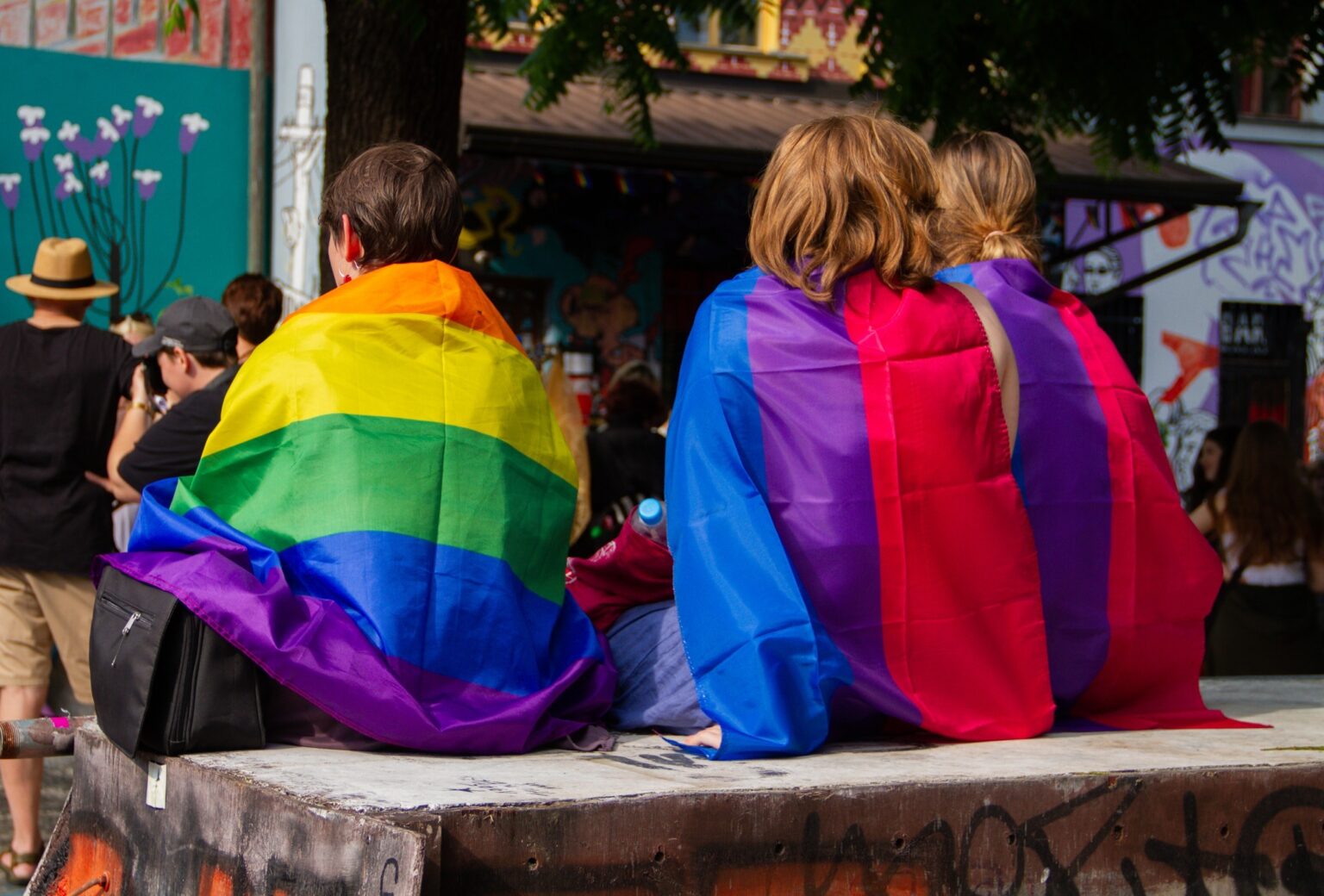
A far-reaching new survey into bi+ groups in Europe and their work, shows glaring gaps and points the way forward for a movement that’s often sidelined in the broader LGBTI movement.
Bi+ activism in Europe has been evolving, but until recently, there was no structured way to understand the needs, challenges, and opportunities facing bi+ groups. New research offers the most comprehensive look yet at the bi+ movement across the continent.
The survey, conducted by Bi+ Equal, gathered input from 39 bi+ groups and 44 individual activists from nearly every EU country. It reveals a dynamic but underfunded and underrepresented movement. The findings show that despite bi+ people being the largest group under the LGBTI umbrella, they remain largely invisible, often sidelined in broader LGBTI spaces and political advocacy.
The research report highlights that bi+ groups and activists prioritise three main goals:
- Promoting bi+ visibility and inclusion in LGBTI communities (83%)
- Challenging bi+ erasure and negativity (79%)
- Creating positive, healthy, and safe communities for bi+ people (67%)
A significant takeaway is that bi+ people still struggle for recognition, even within the LGBTI movement. Many organisations fail to acknowledge the specific needs of bi+ people, contributing to a sense of isolation. The findings recommend that LGBTI organisations take active steps to educate themselves on bi+ experiences, address bi+ erasure, and ensure their work is inclusive of bi+ people.
Stark Disparity
The survey also confirms a stark financial disparity between bi+ groups and other LGBTI organisations. While 76% of bi+ groups operate on less than €5,000 annually, LGBTI organisations generally have much larger budgets, making it difficult for bi+ activists to sustain their work. Many groups rely entirely on volunteers, leading to burnout and stagnation. “About half of the active bi+ groups do not have any budget. And the difference with LGBTI organisations in Europe is huge,” Dr Jantine van Lisdonk said during a panel where Bi+ Equal research team discussed the outcomes of the survey.
This financial struggle means that while bi+ groups excel in community-building like organising meetups, support groups, and social events, few have the resources to engage in formal advocacy. “There is a growing need for political advocacy for bi+ issues, but the financial resources are limiting this” shared Aida Marukyan during the panel. Despite widespread recognition that bi+ people need targeted policies and representation, only a handful of bi+ groups engage directly with policymakers or push for systemic change.
Striking finding
One of the most striking findings is the strong support for a formal European bi+ entity. The survey found that bi+ activists envision such an organisation as a platform for networking, advocacy, and capacity-building. It could help address the lack of funding, provide political representation, and foster cross-border collaboration. The Bi+ Equal survey has provided insight into the state of bi+ activism in Europe. It confirms what bi+ activists have long argued: that their visibility and advocacy need to be strengthened, that funding disparities must be addressed, and that the movement requires an organised European voice. Bi+ Equal is committed to taking the next steps, working with activists to co-create a structure that meets their needs. The research is a first step in ensuring that bi+ voices are no longer ignored but instead positioned at the centre of LGBTI equality work in Europe.
25 years of bi+ visibility and the rise of the Bi+ Equal umbrella
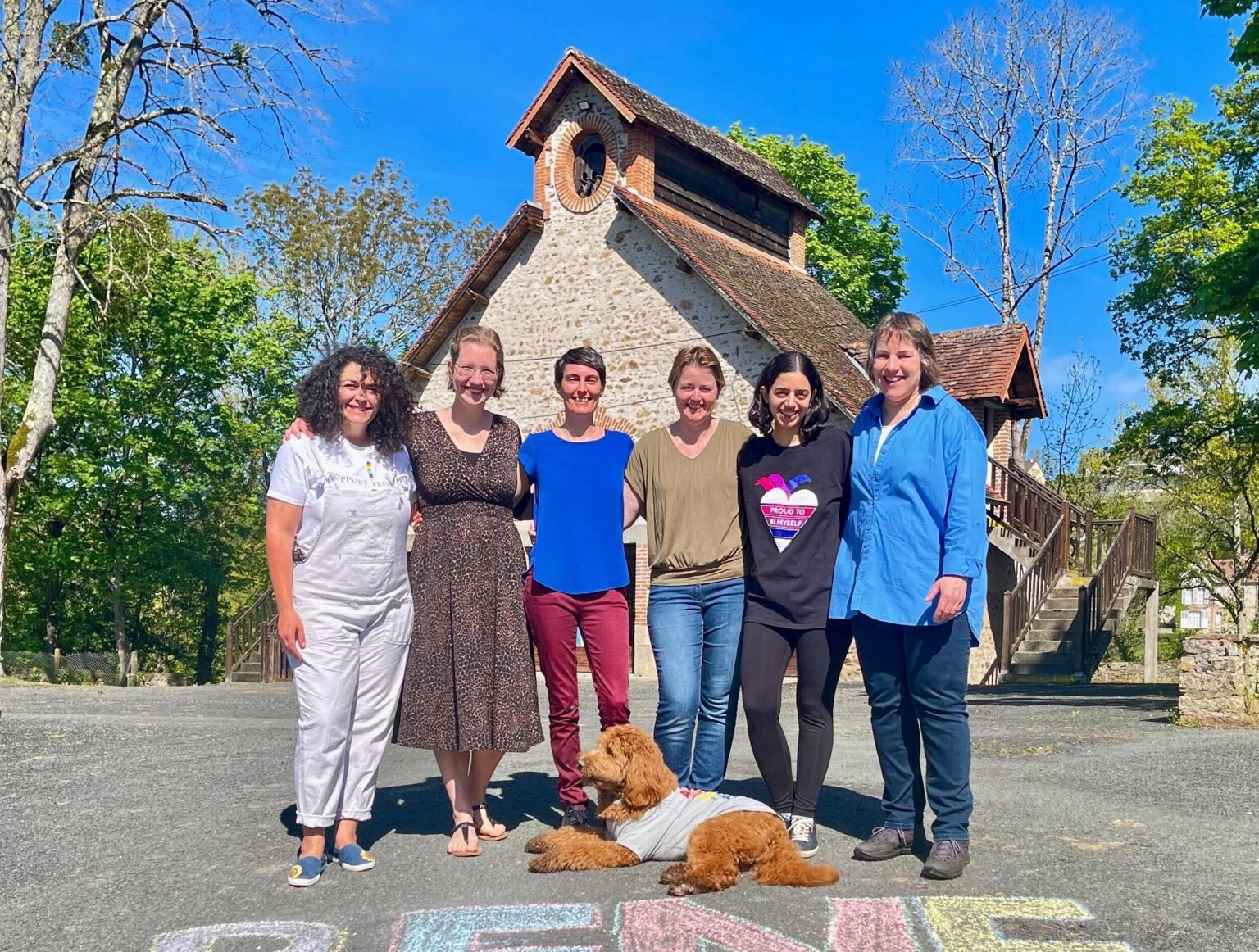
As we celebrate 25 years of Bi+ Visibility Day, today’s blog is all about a newly organised initiative that’s gaining momentum in Europe.
For today’s blog, Barbara Oud, Soudeh Rad, and Jantine van Lisdonk from Bi+ Equal, an emerging bi+ umbrella organisation working to reshape how bi+ people and bi+ equality are understood and supported across Europe, talk about the group’s mission, commitment and future plans. Bi+ Equal is an initiative created by and for bi+ people, aiming to fill the gaps in representation and advocacy that have often left bi+ voices unheard in broader LGBTI spaces.
Bi+ equality
At the heart of Bi+ Equal’s mission is the commitment to advocate for equality and inclusion for all bi+ people across Europe. Bi+ is an inclusive umbrella term that encompasses anyone with a sexual orientation focused on more than one gender. This includes those who identify as bisexual, pansexual, queer, or may choose not to use any specific label for their sexual orientation. The aim is to challenge the monosexual norm, also known as monosexism, which all bi+ people face, regardless of how they identify. Bi+ Equal envisions a pan-European movement that advocates for bi+ equality, ensuring the rights and visibility of all non-monosexual people.
A useful framework for understanding the complexity of being bi+ is the AIB model, which breaks down sexuality into three components: attraction, identity, and behaviour. Unlike monosexuality (attraction to only one gender), where these elements tend to align, in bi+ people, these circles don’t always overlap, reflecting the unique and varied experiences within the bi+ community.
Why we need a bi+ movement in Europe
A bi+ movement is crucial because it addresses the specific needs and challenges faced by bi+ people. The pervasive monosexual norm — the assumption that people are exclusively attracted to one gender — makes it difficult for bi+ people to be recognised fully in both LGBTI and wider societal contexts. Many bi+ people face unique forms of erasure, discrimination and misunderstanding, even within the LGBTI community, highlighting the importance of a bi+ movement dedicated to addressing these issues. As Barbara puts it, ‘We are the biggest group under the LGBTI umbrella, but we remain largely invisible. We need to work on visibility and equality for bi+ people.”
A bi+ entity can ensure advocacy for bi+ rights and provide dedicated spokespeople who can represent bi+ voices and priorities in policy-making and public discourse.
Co-creating the future of a Bi+ umbrella entity
Bi+ Equal’s work is by and for the bi+ community. A key component in order to create this entity and decide whether it should be an organisation, a network, a collective or community, or any other type of grouping, is Bi+ Equal’s newly launched survey. Designed to assess the state of bi+ activism across Europe and capture the lived experiences and needs of bi+ people, this survey not only reflects the diversity within the bi+ community but also aims to guide the co-creation of future priorities for the movement.
By centering bi+ voices and experiences, Bi+ Equal is helping to shape the future of bi+ activism in Europe. Bi+ people are encouraged to participate in the survey and join the movement, as our insights and involvement are vital for creating a vibrant, inclusive bi+ community that advocates for our shared needs and rights. If you wish to participate in the survey, send an email to research@biplusequal.org, and you will receive a personalised (and anonymous) link.
Webinar: Working with Volunteers in the LGBTI Movement
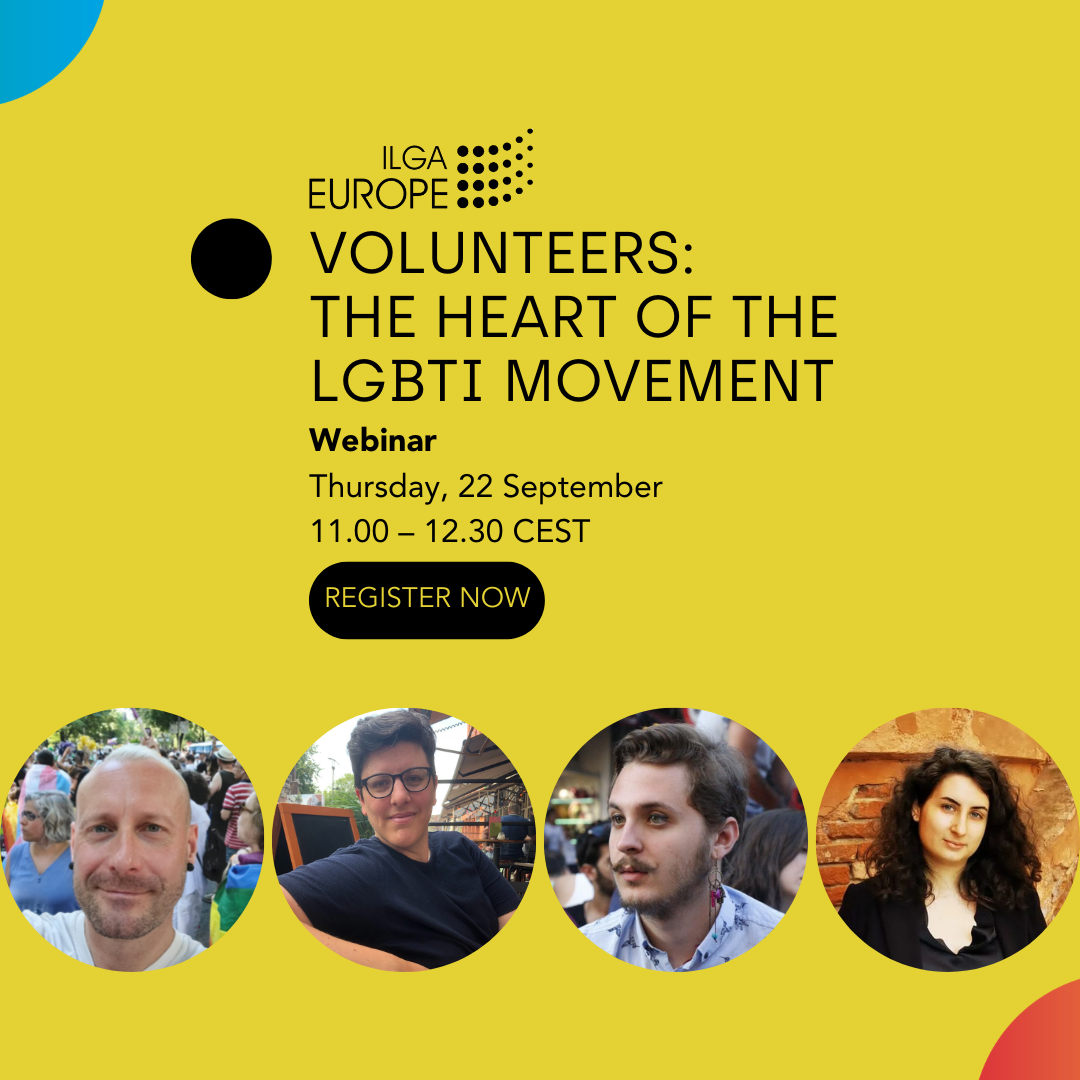
On Thursday, 22 September 2022 between 11.00 – 12.30 CEST, ILGA-Europe will organise an online event to discuss different approaches of LGBTI organisations in engaging with volunteers. The webinar will reflect on why engaging volunteers is important and often even necessary as part of a strategic community organising work.
We will be joined by four speakers who have experience in engaging with volunteers in their organisations:
- Piotr Sadowski (he/him), Secretary General, Volonteurope
- Alex Zorilă (she/they), Volunteer Coordinator, Community Outreach Officer and Bucharest Pride 2022 Coordinator, Asociația Accept (Romania)
- Cem Öztürk (they/them), Projects and Fundraising Coordinator, SPoD (Turkey)
- Ellen Sleeuwaert (she/they), Volunteer at Çavaria and L-week (Belgium), Co-chair of the Board of Trustees of Çavaria
Prior to the beginning of the webinar, attendees will be asked to share their experiences of volunteering or engaging with volunteers using an online interaction tool. The webinar will be recorded and the key takeaways will be reported on a new card on the ILGA-Europe Resource Sharing Hub.
Click here to register for the event. After registering, you will receive a confirmation email containing information about joining the webinar.
About the Speakers
Piotr Sadowski (he/him), Secretary General, Volonteurope
Piotr Sadowski has been Secretary General of Volonteurope (an international civil society network advocating for social action and active citizenship as routes to achieving more social justice) since 2008; he has also been President of Social Platform since April 2019Piotr represents Volonteurope and wider European Civil Society interests in the EESC Liaison Group and, within the pillars of the Council of Europe, he is an elected member of the INGO Conference Standing Committee, with a particular remit on safeguarding social rights throughout Europe
Alex Zorilă (she/they), Volunteer Coordinator, Community Outreach Officer and Bucharest Pride 2022 Coordinator, Asociația Accept (Romania)
Alex Zorilă has been at Accept since 2015, which she first joined as a volunteer. Currently, she is a volunteer coordinator and works directly with young queer people that come to Accept for support. For Bucharest Pride 2022 she was the main coordinator, volunteer coordinator and event organizer.
Cem Öztürk (they/them), Projects and Fundraising Coordinator, SPoD (Turkey)
Cem Öztürk is a graduate of the University of Nottingham (UK) and has been involved in LGBTI activism since 2012. Having had participated in numerous trainings on human rights and related fields, Cem also volunteered for various LGBTI+ organisations. Since 2020, they have been working professionally at SPoD coordinating the work of the volunteers and also sharing their expertise on CSO management, project management, fundraising and other areas of work.
Ellen Sleeuwaert (she/they), Volunteer at Çavaria and L-week (Belgium), Co-chair of the Board of Trustees of Çavaria
Ellen Sleeuwaert has been volunteering within the Rainbow Community since 2010. During that time she co-founded a grassroots initiative for women, was chairperson of a regional Rainbowhouse and co-founded the LGBT network within the biggest Belgian trade union. At the moment she is mainly occupied with co-chairing at the Board of trustees of Çavaria and organising L-week – a festival for lesbian, bi, trans, queer and non-binary people in Antwerp.
Organisational development & design
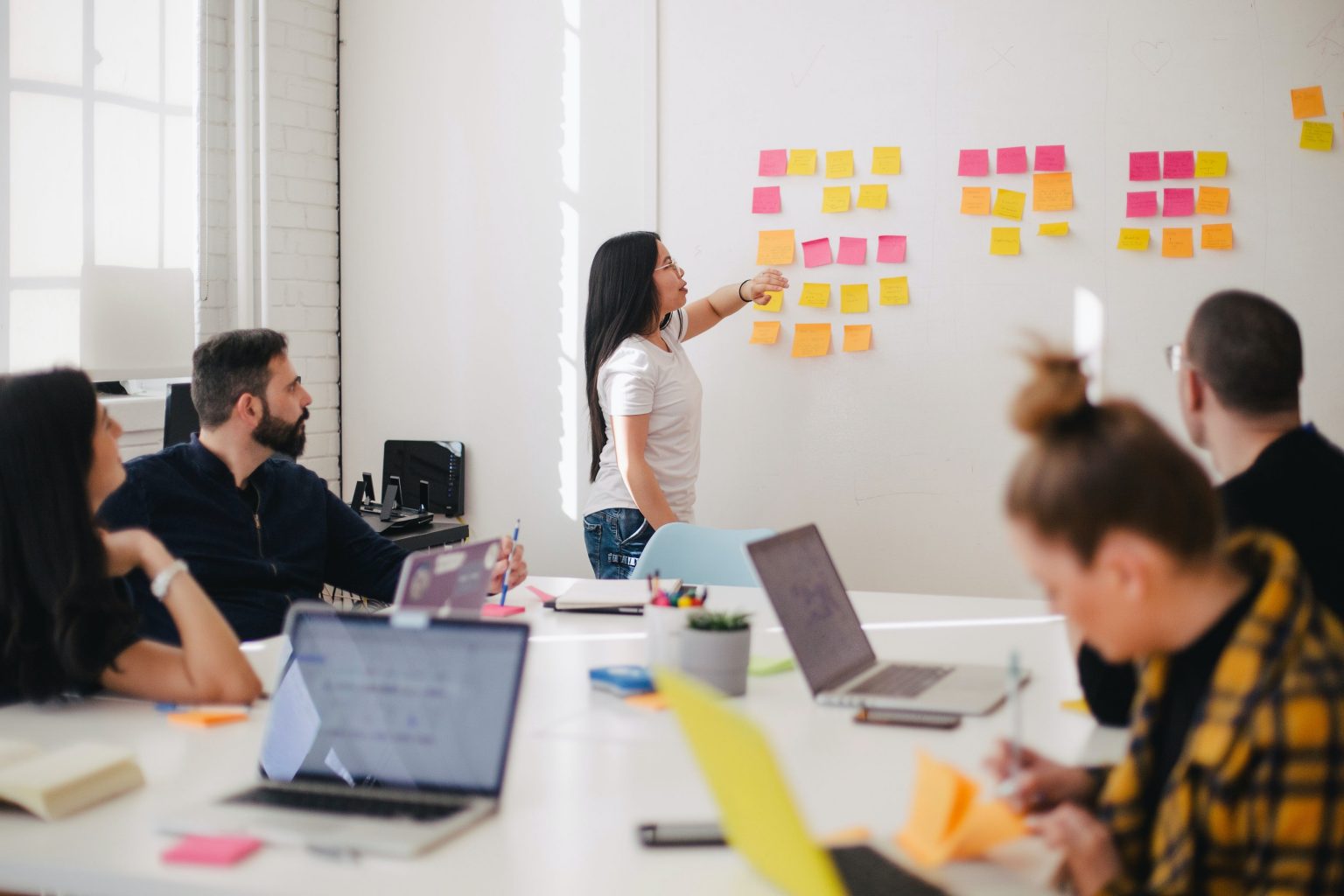
Creating and evolving organisations, groups, collectives and networks is at the core of social change work. There is no universal recipe for success here. A lot of this work is experimental and unique to each and every case.
We are here to support LGBTI activists in creating and developing organisations, groups, collectives and networks that make sense for their purpose and context. For example, along with our grants, LGBTI groups have our support and coaching in fine-tuning their strategies, strengthening financial management systems or practices, and in navigating crises.
We centre and expand this work through the programme – OrgMinds: Insights for Designing Purposeful and Resilient LGBTI organisations.
OrgMinds is a learning programme for LGBTI activists on designing and running organisations, groups, collectives or networks that are fit to advance their missions, bring people together, withstand troubles, and make the best of their resources.
OrgMinds is currently bringing together a group of around 20 LGBTI activists from 14 countries who are:
- Learning what organisational design is and how it can support their organisations’
- strategy and mission
- Getting hands-on tools and solutions for fine-tuning and strengthening their organisations through strategy, structure, and culture, and testing the relevant elements in practice
- Connecting with a supportive peer network of other LGBTI activists and organisations on this journey of growth and learning.
We are observing, documenting, and building up on the experience of OrgMinds participants to make sure that the rest of the LGBTI movement can access this learning.
To find out more about our Organisational Development and Design programmatic work, contact Senior Programmes & Policy Officer, Anastasia here.
5 profound lessons we learned from working with disabled LGBTI activists and organisations
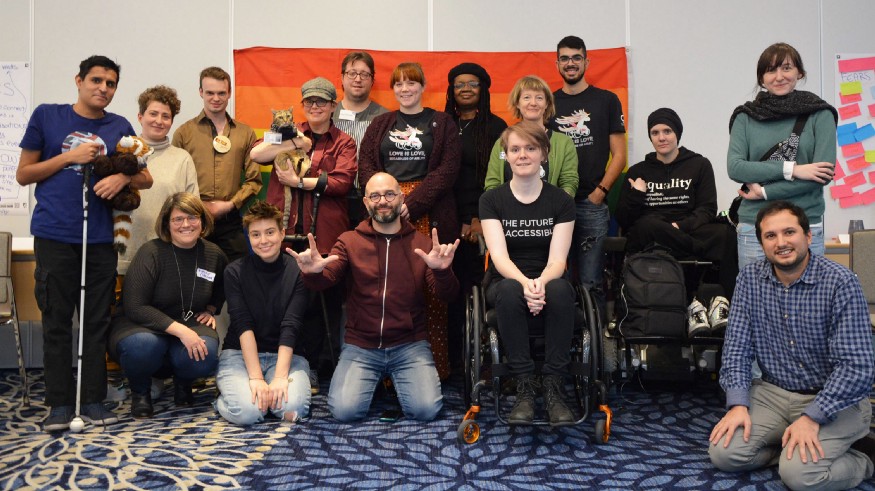
Making our work more inclusive is at the core of ILGA-Europe’s purpose. This is especially true in the case of disabled LGBTI people, who continue to be marginalised in our movement. In this blog, we share some of our learnings from working alongside disabled LGBTI activists. If you are part of a queer rights organisation, this may be particularly useful for you!
All LGBTI people are still far from living in fully equal societies but D/deaf and disabled LGBTI people face specific barriers and challenges when accessing human rights. As human rights organisations we have to ask ourselves who are we leaving behind and make space among our priorities. Although, accessibility and inclusiveness are increasingly present in LGBTI groups’ conversations and practices, most D/deaf and disabled LGBTI people continue to be marginalised in LGBTI movements.
At ILGA-Europe, we want to contribute to changing this. For some years now, we’ve been working together with international organisations like the European Disabilities Forum, which defends the interests of over 100 million persons with disabilities in Europe. We’ve learned and readjusted our own practices regarding online and in-person events, language, social media and much more, as well as taking in these lessons in our advocacy work with EU institutions and the Council of Europe.
We’ve also learnt from the community. In 2019 we hosted a gathering of 11 of D/deaf and disabled LGBTI activists from nine countries throughout the European region who clarified their priorities with us: connecting voices, visibility, educating organisations, and the fundamental necessity for D/deaf and disabled LGBTI people to lead this work. Following this initiative, we launched a funding call aimed at developing projects that would support activism at this intersection. The high number of applications we received shows there is an important need. Have a look at what we’ve learned from this funding call, which we hope will be useful for your LGBTI activism work too:
1. Centering disabled LGBTI voices is the starting point
It should go without saying but let’s make it clear nonetheless. LGBTI people with disabilities must be placed at the centre of the work. The projects we supported were led by people who are LGBTI people living with a disability, they were the ones shaping the project as it went along and changing outputs when needed, to ensure that they are meaningful and accessible for the community. This proved essential for the success of projects.
2. Consider additional barriers D/deaf and disabled LGBTI activists face in their work
Groups led by disabled LGBTI people, especially smaller groups, very often have to cope with a lot more than the usual challenges in managing a project. Our experience of supporting projects during the COVID-19 pandemic made it very clear that groups working on the intersection of LGBTI and disability are made more vulnerable by larger inequalities and bigger changes going on in the world. This in no way means that smaller LGBTI/disability rights groups should not be funded! If it means anything, it is that groups at this intersection desperately need more funding, and tailored support that allows them to carry out their projects.
3. Flexibility, support and empathy go a long way
As a grant-maker supporting a disabled LGBTI activism project, a few small things made a significant difference in the development of projects. It mattered that we provided additional flexibility in terms of reallocating budget items, allowing plans to be changed or dropped, and extending project timelines, recognising the learning done along the way. Being explicit about the additional support we could offer and show understanding when groups met unexpected challenges reduced the stress felt by groups who haven’t had much experience in managing funded projects.
4. Financial and human resources support by larger organisations can play an important role
Larger LGBTI organisations can play an important role supporting D/deaf and disabled LGBTI activists. They have infrastructure and capacity to share and can be essential to keep the work of smaller groups going. Receiving support in project management from more resourced LGBTI organisations made a big difference for our grantees. Allocating both financial and human resources is a meaningful way to support D/deaf and disabled LGBTI groups. As long as you keep D/deaf and disabled LGBTI in the lead to shape the project and decide on outcomes!
5. This is your time to learn too!
Supporting disabled LGBTI activism is also about learning about the lived reality of D/deaf and disabled LGBTI people yourself. Think about how you design projects and activities so they lead to changes in your own organisational culture — from making your work practices and premises, your communication and events more accessible, to increasing your knowledge and resources available on disability rights issues.
Any organisation that wants to engage should commit to listening to the needs of D/deaf and disabled LGBTI people and introduce organisational changes to cater them where needed. At ILGA-Europe we are committed to continue doing our best to ensure we learn, to develop and change as we learn, and to find more ways to support D/deaf and disabled LGBTI activists and activism in Europe and Central Asia.
The frontline: Navigating Change as an LGBTI Activist
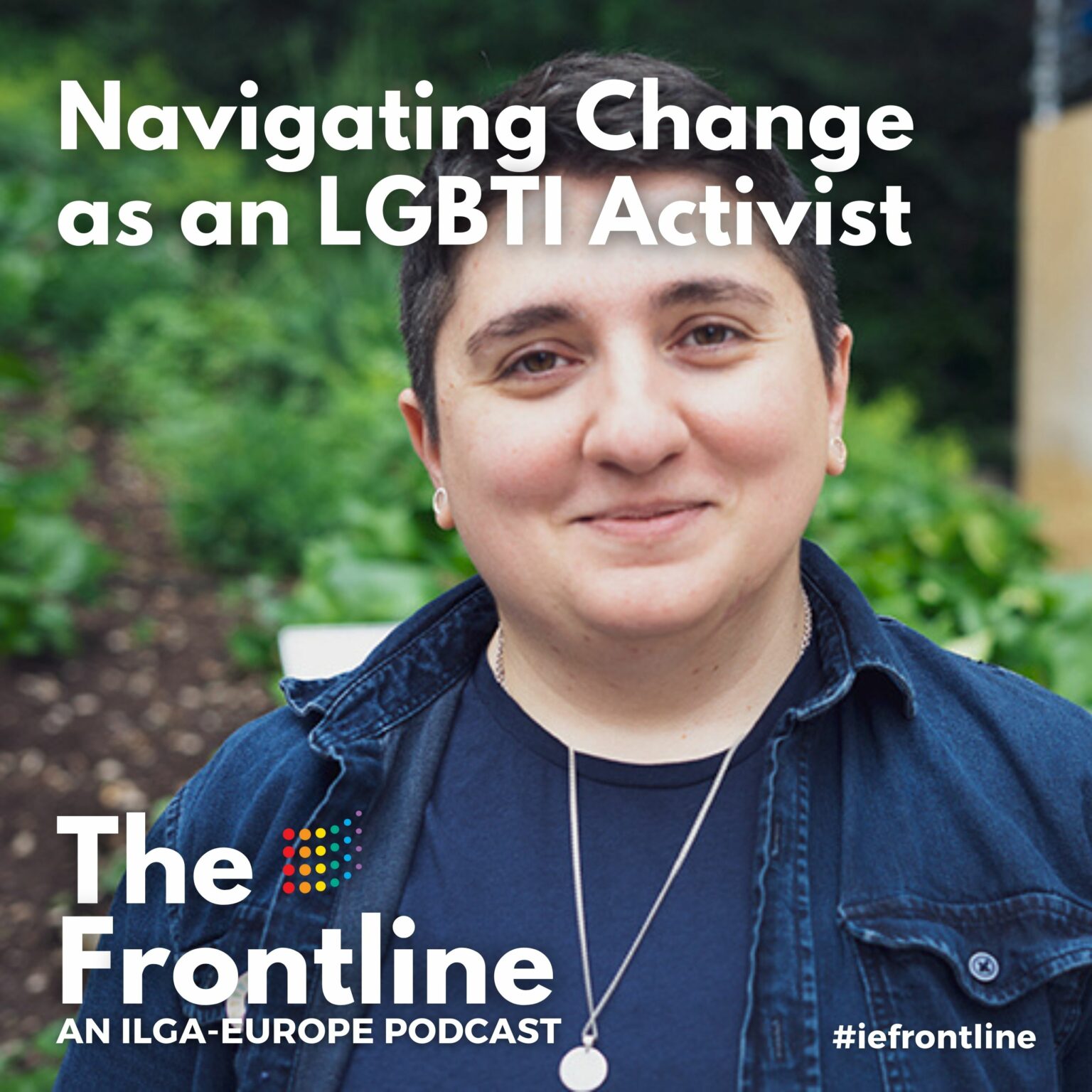
This episode of our podcast features an enlightening conversation about navigating change as an activist, between ILGA-Europe’s Executive Director Evelyne Paradis and Natia Gvianishvili*, who has been actively engaged with local, regional and international LGBTI and feminist movements for over a decade now. Natia began her activist life in Georgia, and she currently resides in Sweden, where she works with the Swedish
Federation for LGBTQ Rights (RSFL).
Evelyne and Natia chat about how change affects activists and activism, and deliberately exploring our relationship with change so that we can find our own compass when navigating a constantly transforming world.
Listen below or click here to listen and subscribe to The Frontline on your favourite podcast platform.
* Since this episode was recorded, Natia Gvianishvili has been elected to the ILGA-Europe Executive Board
The Frontline: Being an LGBTI Activist Today
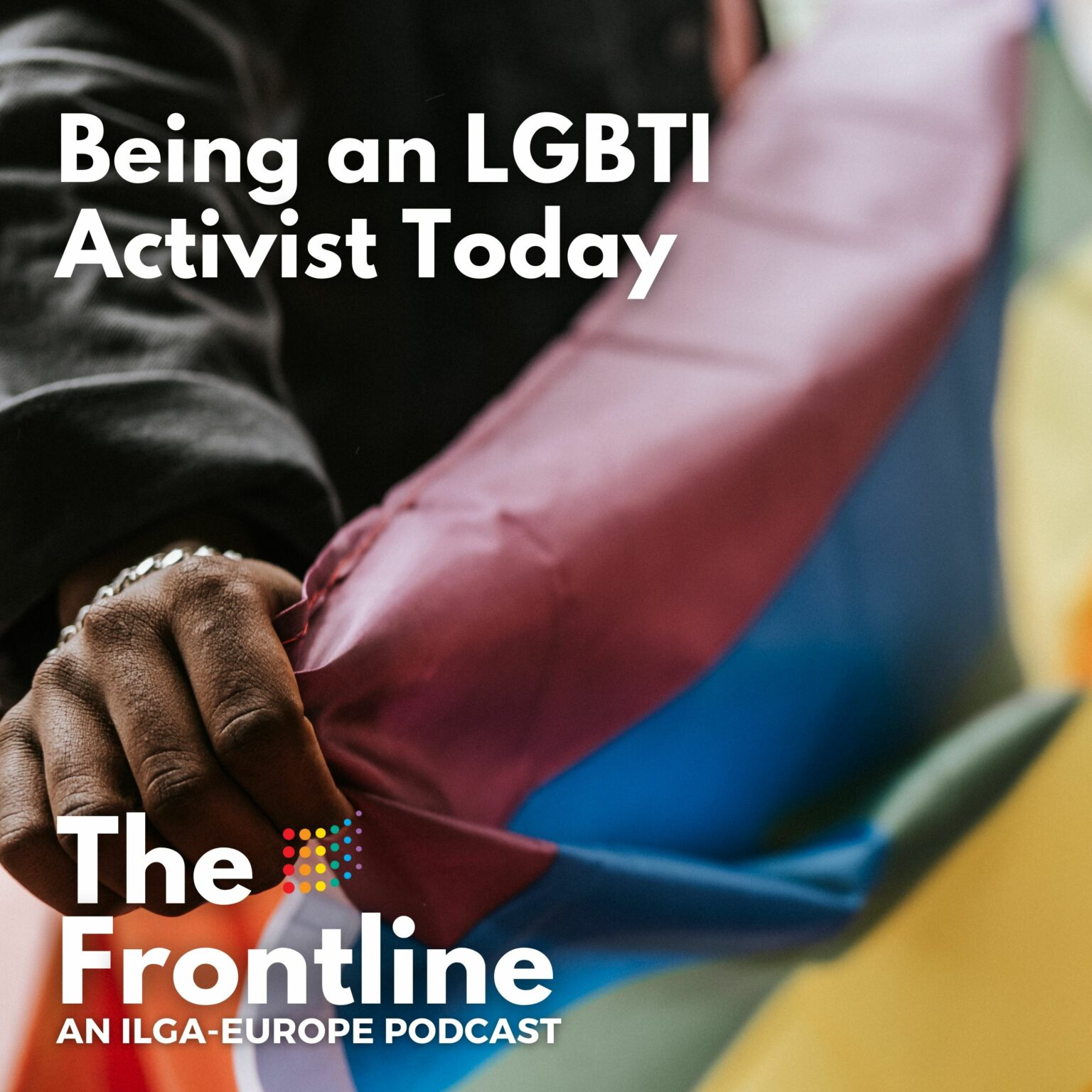
Joining us to talk about the reality of queer activism in the current context, the good sides and bad, are ILGA-Europe’s Programmes Director, Bjorn van Roozendaal; Ola Kaczorek, founding member of Love Does Not Exclude, the first organisation to demand marriage equality in Poland; Irena Cvetkovic, the Executive Director of Coalition Margins in North Macedonia, which works to promote and protect the human rights of marginalised communities, and Ruslana Hnatchenko from the Ukrainian lesbian feminist NGO, Women Association Sphere.
Listen below or click here to listen and subscribe to The Frontline on your favourite podcast platform.
The Frontline: Empowering LGBTI Activists in a Changing World
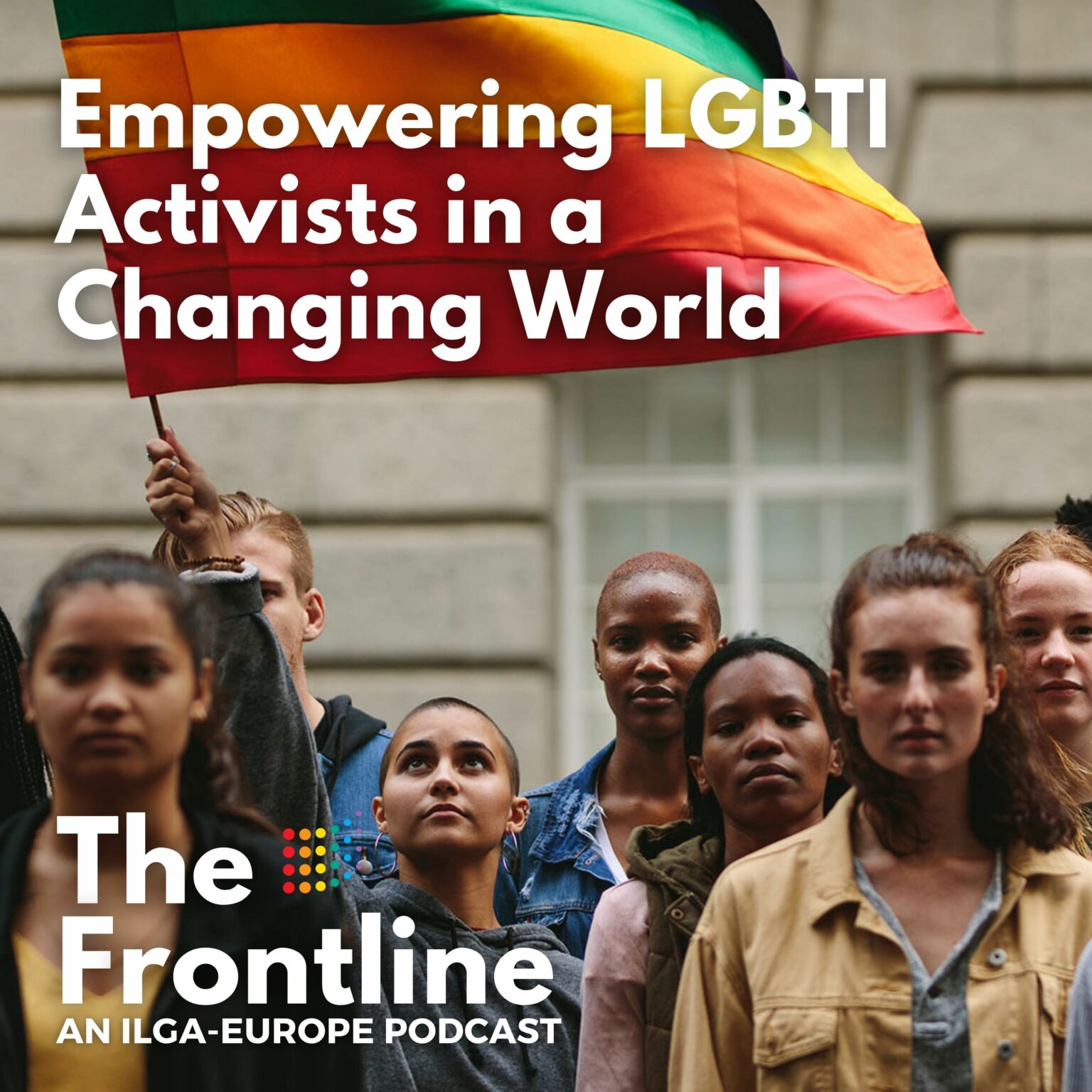
To introduce our new series on empowering LGBTI activism, Bjorn Van Roozendaal from ILGA-Europe talks about the priorities of our work with activists in a world that’s going through enormous change, and what to expect as we explore the challenges are activists face in doing the work, and some of the key ways they are addressing those challenges.
Listen to the introduction to this mini-series below or click here to listen and subscribe to The Frontline on your favourite podcast platform.
The Frontline: The LGBTI Activist Wellbeing Challenge
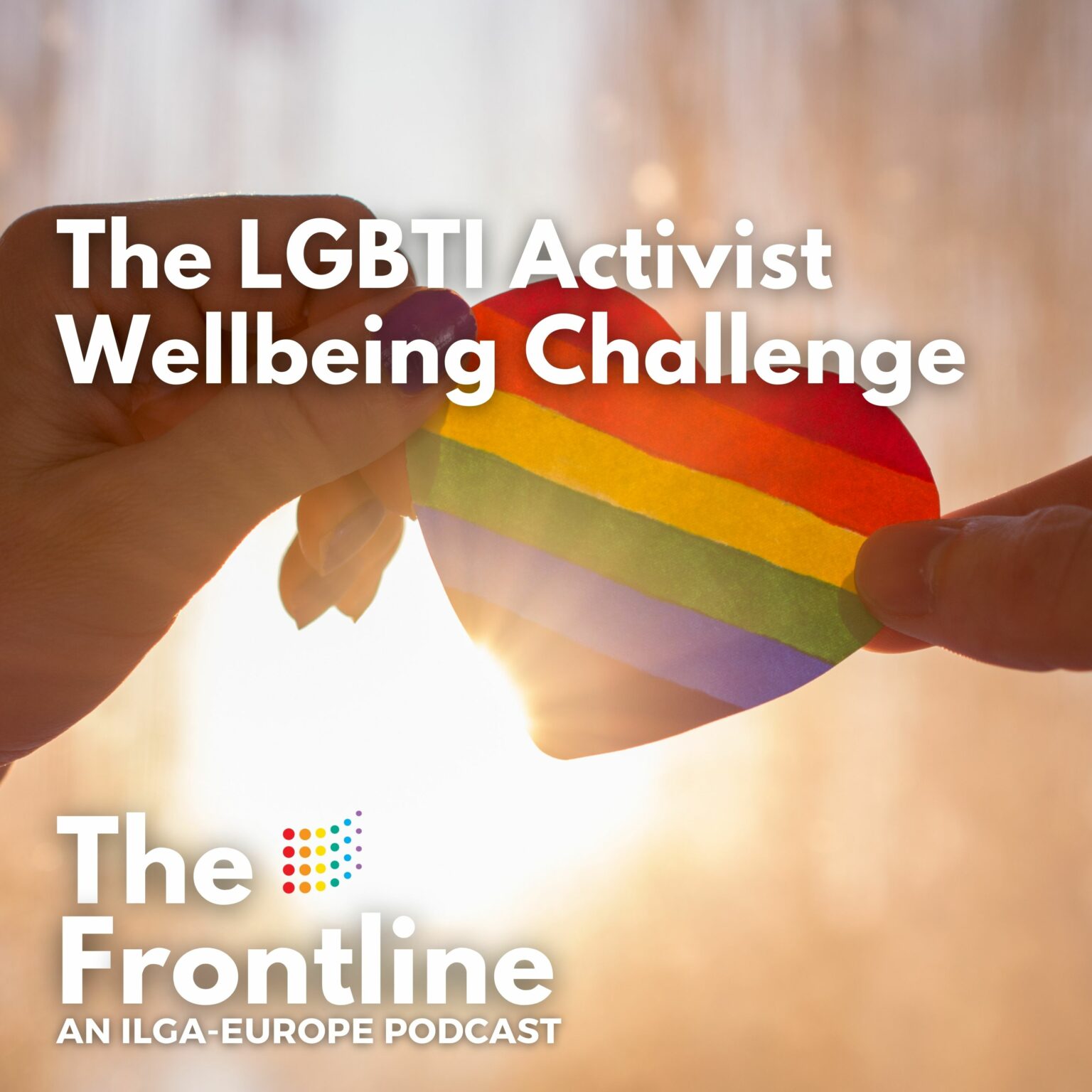
While a number organisations and groups have already taken concrete steps to address wellbeing, there’s no golden rule on how to approach these challenges. In this episode we share what ILGA-Europe has been doing to support the wellbeing of the movement.
Joining us to talk about the distinctive approaches they’ve used to tackle wellbeing issues for their teams are David Kakhaberi, the executive director of Equality Movement in Georgia, and Eka Tseriteli, executive director of Women’s Initiatives Supporting Group, also in Georgia.
Listen below or click here to listen and subscribe to The Frontline on your favourite podcast platform.
The frontline: How LGBTI Activism Can Be Supported
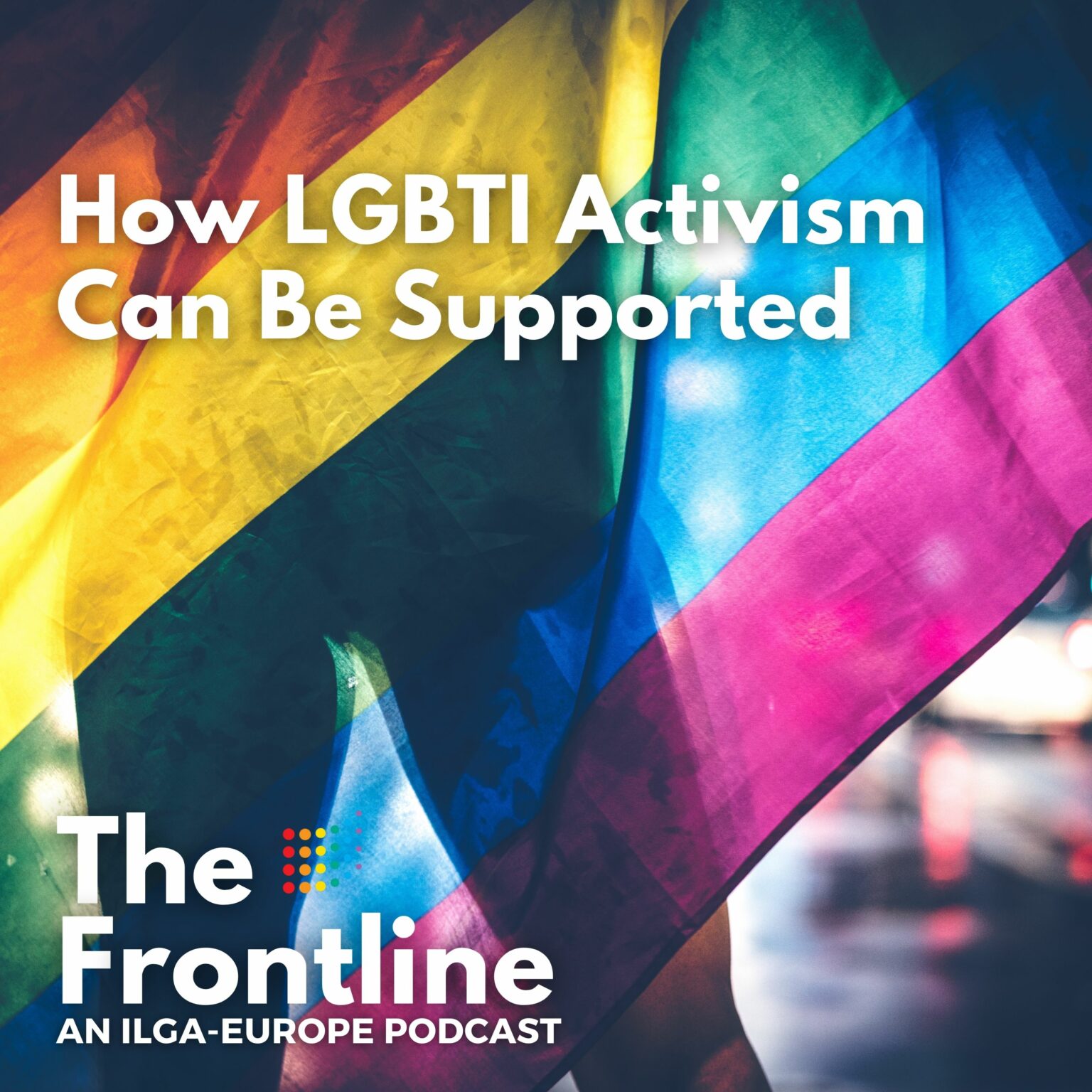
One thing is always clear, no activist or activism organisation can work alone, and the work needs support. But where can that support be found, how can it be accessed, and when it comes through, how can you use it effectively? In this episode, we’re exploring what it means and what it takes to be supported during the highs and lows of everyday activism. We’ll be taking a look at how international and foreign support can be experienced by LGBTI activists in the movement, the difference it can make, and what it takes to get that support and make real use of it.
Joining us to chat about support and empowerment are Stefan Sparavalo from Da se Zna in Serbia and Marty Huber, from Queer Base in Austria.
Listen below or click here to listen and subscribe to The Frontline on your favourite podcast platform.
Join our webinar on community organising for older LGBTI persons
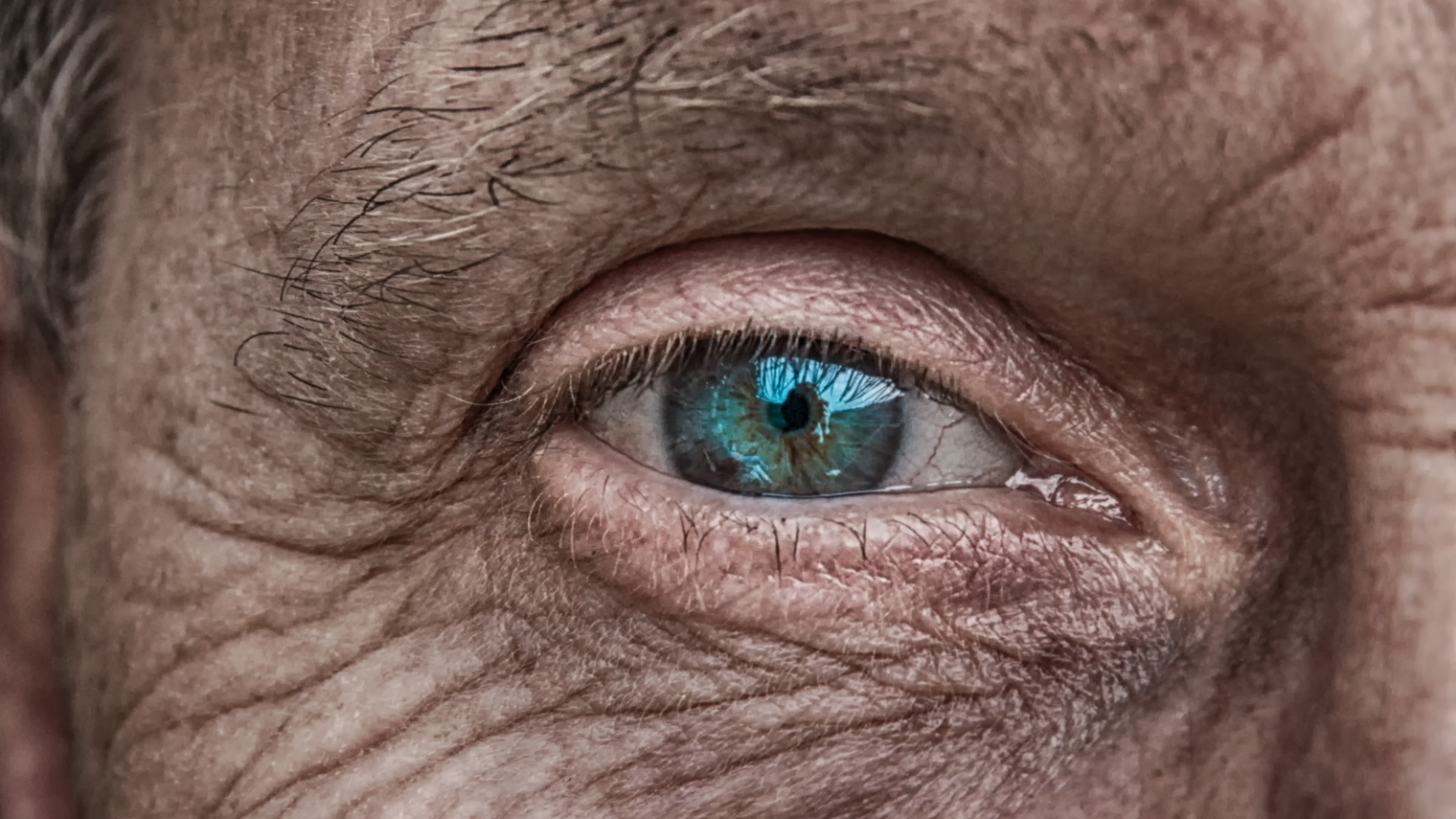
We invite LGBTI organisations, groups and activists involved in community organising to participate in our webinar on ‘Community organising for older LGBTI persons’ on Friday, October 1 at 11 AM (CEST).
THIS WEBINAR HAS ALREADY TAKEN PLACE
Reaching out to and supporting older LGBTI persons, while taking into consideration intersecting identities such as sexual orientations, gender and age is crucial for our movement. At this webinar you will have the opportunity to hear from a number of prominent LGBTI activists who have extensive experience in community organising with and for older LGBTI persons.
With growing number of people above the age of 60 in Europe, according to Eurostat there will be almost half a million centenarians in the EU by 2050. In Central Asian countries, UN DESA forecasts an increase of the average life expectancy from 60 to 70 in the next 30 years. As we continue raising awareness about diversity and intersectionality within LGBTI communities, which are increasingly becoming more and more visible across Europe and Central Asia, we also encourage recognition and inclusion of older LGBTI persons’ realities and experiences in LGBTI community organising.
This session in the ILGA-Europe series of community organising webinars marks the International Day of Older Persons 2021, and will explore how LGBTI organisations and activists in our region integrate services and activities to include older LGBTI persons and better respond to their needs as part of their community organising efforts. The event will have simultaneous English<>Russian translation.
Joining us will be:
- Alexei Marcicov (he/him), Leader of the Support Group for older gay men at GenderDoc Moldova, Co-founder of GenderDoc Moldova
- Evien Tjabbes (she/her), Board Member of the European Central Asian Lesbian Community (EL*C), Formerly coordinator at ILIS (International Lesbian Information Service)
- Carolina Brauckmann (she/her), Coordinator for the work with older LGBTI persons at the LGBT Counseling Centre Rubicon, Cologne, Germany, Board member of the Lesben und Altern Umbrella Organization in Germany
- Marc Charles Wynn-Derksen (he/him) – Ambassador (volunteer) with Roze 50+, the Netherlands
Learn more:
Would you like to watch the recordings of our previous webinars on community organising? Please follow this link or contact ILGA-Europe Programmes Officer Nurbek Omurov: nurbek@ilga-europe.org
To understand what LGBTI community organising is, you may register and learn more on our Online Learning Hub at: https://hub.ilga-europe.org
To know more about our policy position on inclusion of older LGBTI persons, you may read ILGA-Europe submission to the European Commission’s consultation on the Green Paper on Ageing.
Join The Hub, ILGA-Europe’s free Resource Sharing Centre for LGBTI activists in Europe and Central Asia
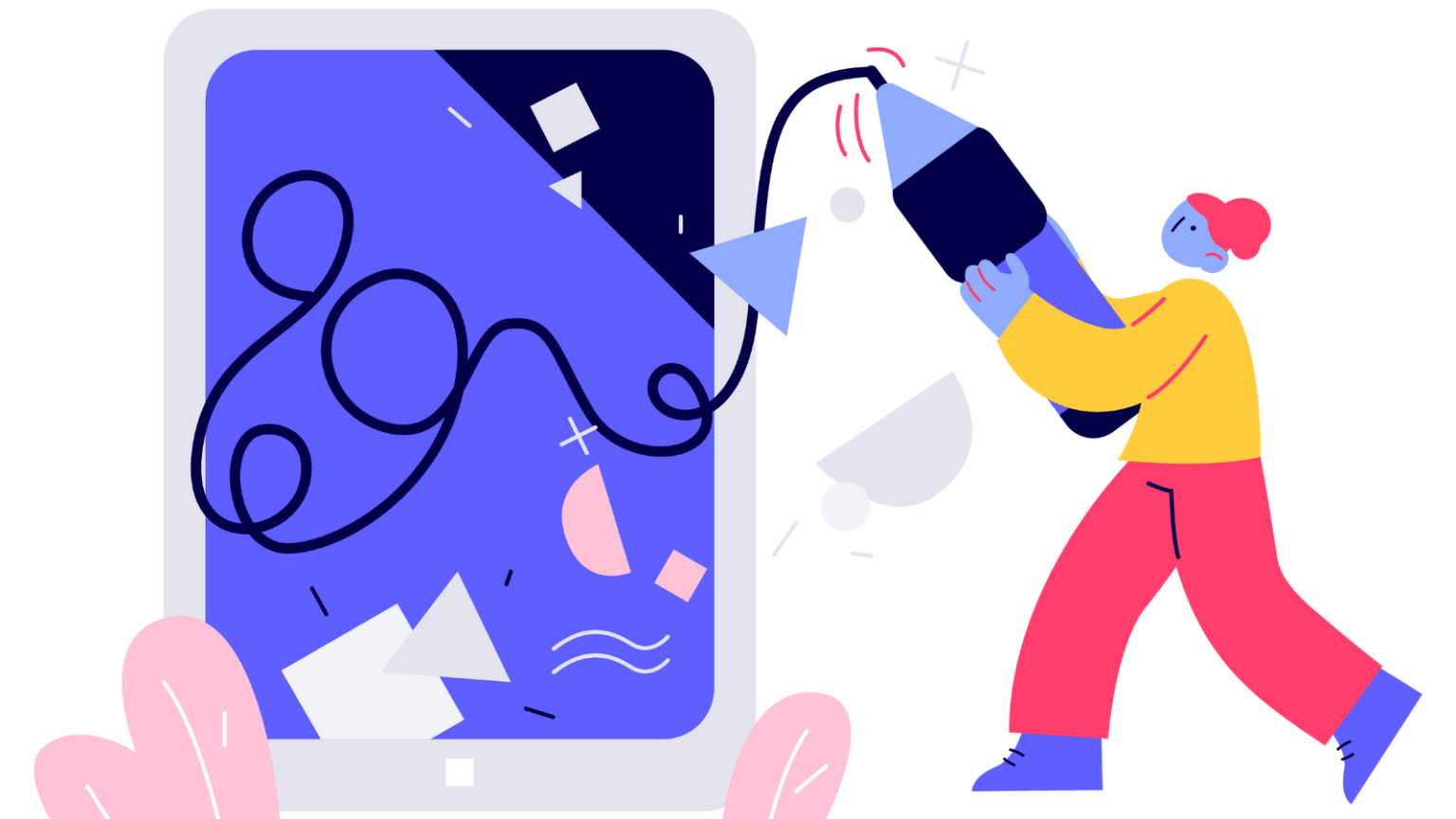
Today we are publicly launching The Hub – ILGA-Europe’s free Resource Sharing Centre for LGBTI activists in Europe and Central Asia.
The Hub is an easily accessible online platform for LGBTI activists in Europe and Central Asia. Through it, ILGA-Europe offers various resource ‘cards’ that contain information and guides around certain thematic areas of work. You will find dozens of resources already in the thematic sections on campaigning, communications, community, fundraising, management, security, wellbeing and Russian language cards. Each card contains comprehensive information around a particular area of work.
In recent months a number of activists from ILGA-Europe member organisations have already joined us. Today we ask you to join us too!
As activist, you can proactively contribute to building resources by sharing case studies. Simply click ‘add case study’ in the card that you want to contribute to and share your experience. We will then review your case study.
Want to help make the Hub a success? Here are four things to do now:
- Join today – by creating your own account at https://hub.ilga-europe.org
- Check the community guidelines – to understand how the Hub works https://hub.ilga-europe.org/code-of-conduct/
- Spread the word – and tell other LGBTI activists in Europe and Central Asia to join us. Here’s a tweet you can share now!
- Help us keep the Hub a safe place – and get your account verified once you’ve signed up. This way you can access content that is marked sensitive.
COVID-19: Keeping LGBTI communities together
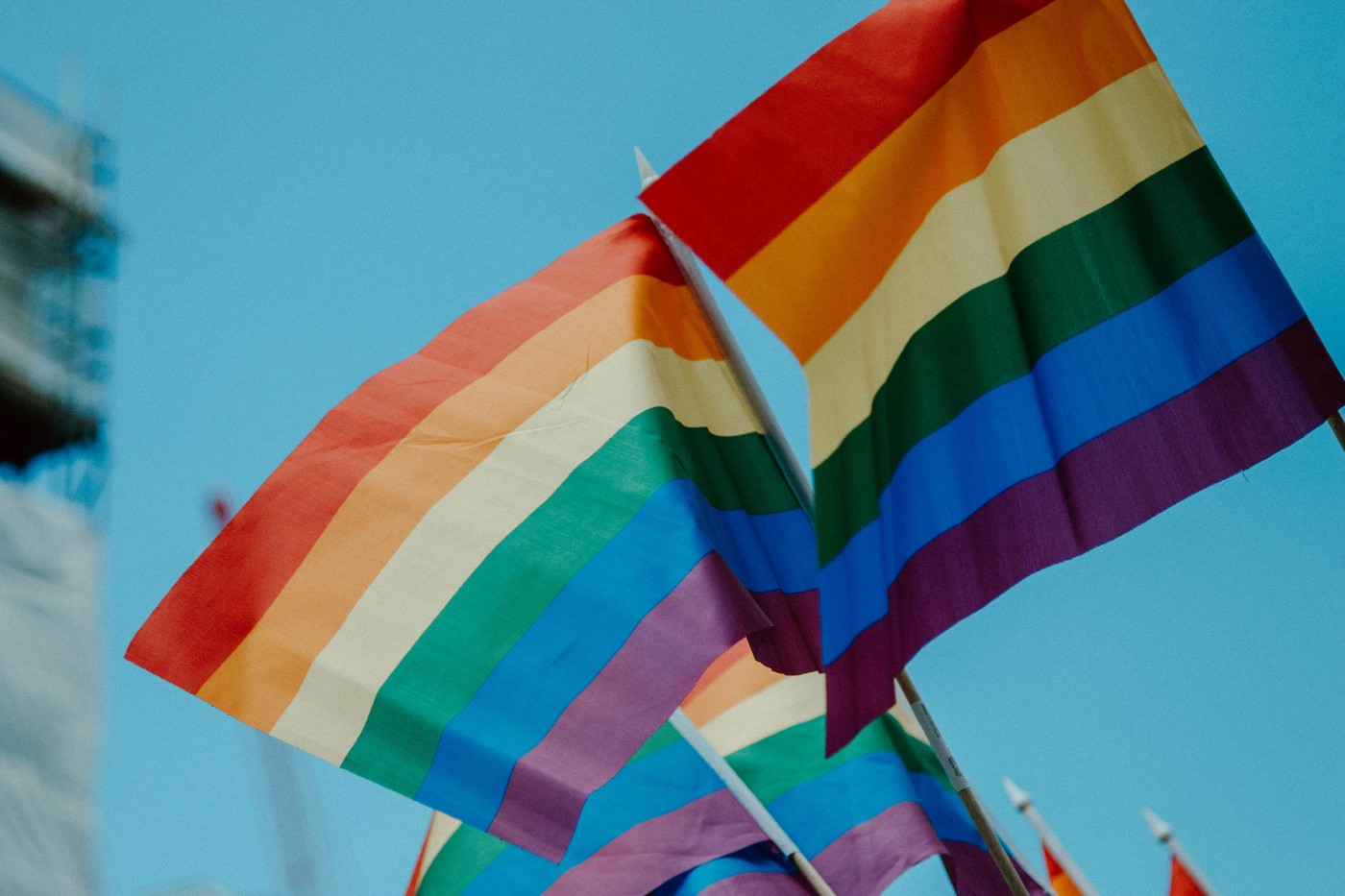
Many countries have surpassed the peak of the COVID-19 crisis and are beginning to plan phased-out endings of their lockdowns. But we’re not out of the woods yet, and if numbers of coronavirus cases start rising again, lockdown measures are most likely to be extended or reinstated, as was seen in Singapore. In a webinar presented by ILGA-Europe earlier this month, participants shared the activities and strategies their organisations have used to stay connected while confined to their houses.
Coffee on Zoom or brunch on Facetime? Following an online course together or watching a movie? For the past two or three months, LGBTI organisations have been exploring a plethora of different ways of staying connected, while providing support to their communities.
As part of ILGA-Europe’s ‘Protect, Adapt, and Rally’ three-part plan to support the LGBTI movement through the COVID-19 crisis, our webinar on Community Organising provided a space to share ideas and opinions on how to continue staying in touch, and how activists have been helping their communities and vulnerable individuals during these challenging times. Here are some of the activities our participants became involved in:
1. Individual and Community Support
- Providing antiretroviral therapy (ART) to LGBTI living with HIV.
- Creating an online peer group to provide psychological support.
- Offering online psychological support with a psychotherapist available at no cost.
- Phone and WhatsApp campaigns with volunteers offering psychological and legal support.
- Running a food provision service for trans sex workers who are unable to work.
- Creating a Facebook support group to provide information on national activities, on and offline.
- Providing online materials about COVID-19 and social distancing for LGBTI youth.
2. Coming Together
- Setting up a penpal network.
- Setting up online support groups for trans people and parents of LGBT people.
- Collaboration with other organisations
- Hosting social media live events (Facebook, Instagram) to offer a platform to members of the community.
- Virtual Coffee Lottery via Zoom, a virtual social occasion where participants are randomly paired for an online coffee meet-up
- A ‘Queerentine’ online hangout for the community to discuss various issues.
3. Fun and Entertainment
- Online meetings with LGBTI groups to play games and chat.
- Volunteering to walk with a member of the community, while socially distancing.
- Sending out newsletters with recommended activities that are accessible online, such as LGBTI events, books and movies.
- Formal and informal group meetings on social media platforms to discuss ideas on the use of time; how to be ‘sexually self-sustainable’ during quarantine; entertainment opportunities etc.
- Online yoga classes
- A charity concert for supporters, providing online space for young queer and ally artists.
Want more? Watch now our webinar on how to continue reaching out to LGBTI during COVID-19 crisis.
In this episode of our series of community organising webinars, we shared stories of how activists maintained their outreach work during lockdown and social distancing requirements across Europe and Central Asia.
What have we learned in supporting our communities as the crisis continues to persist?
Pride in the time of COVID-19
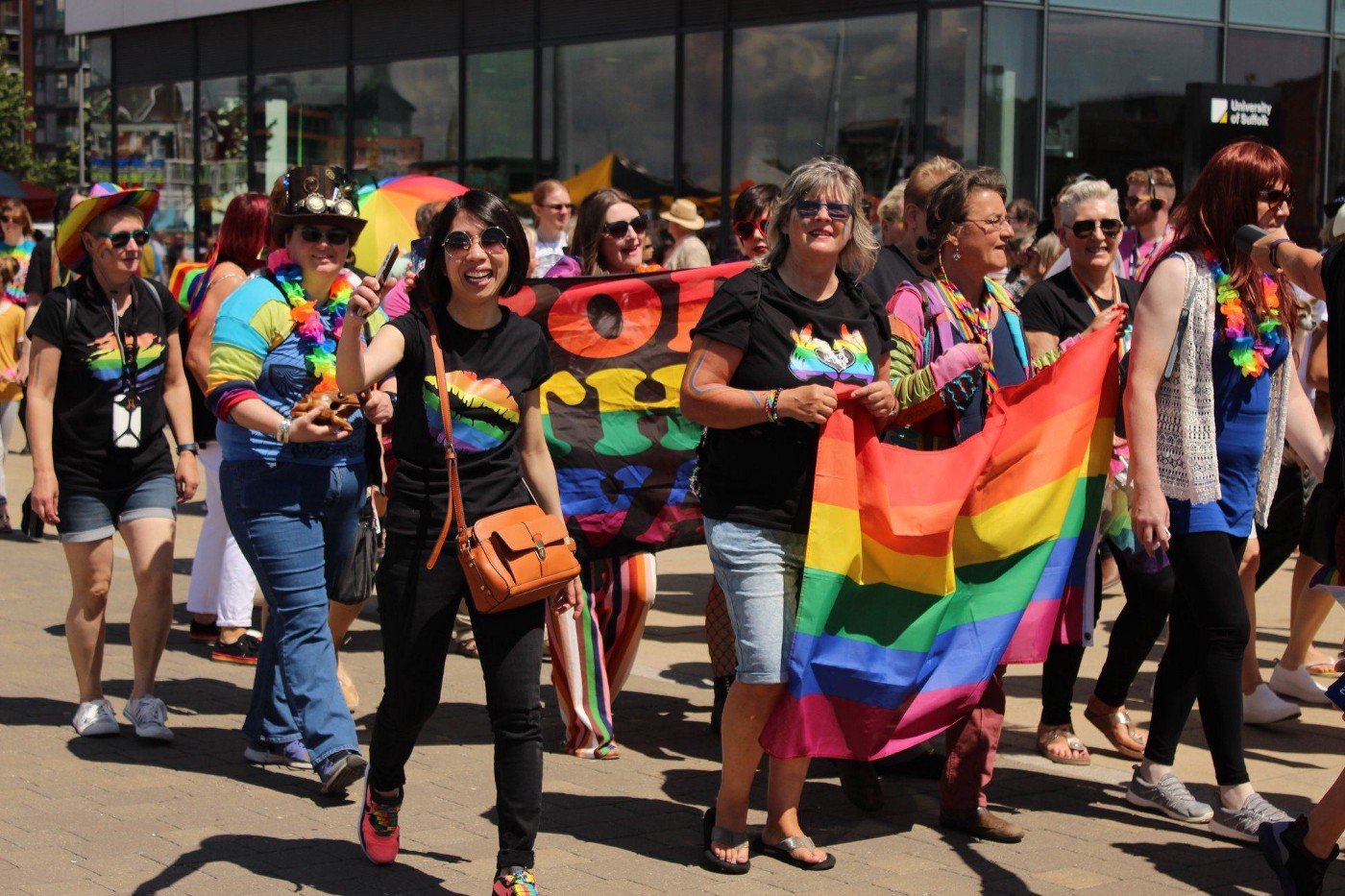
As 300 Pride events, and counting, have been called off across Europe, President of the European Pride Organisers Association, Kristine Garina talks about what this will mean for the LGBTI community, and how we can come together to rise to this critical challenge.
By last weekend the number of LGBTI Pride events impacted by COVID-19 reached 300. In every region of the world, the hard-working and dedicated volunteers who lead these events have had to make the devastating decision to cancel or postpone their 2020 Pride, and in Europe more than 150 have been affected already, including EuroPride in Thessaloniki, Tbilisi Pride in Georgia, and Baltic Pride in Estonia.
I imagine that everyone reading this blog has been to a Pride march or at least knows of their importance. Every Pride changes lives, and for some people will be the first time in their lives that they have felt loved, included, valued, cherished, and part of a community. And it’s that impact, that opportunity to create love and solidarity, which will sustain the Pride movement through this year and beyond COVID-19.
The challenge ahead
But it is going to be a challenge. Like most civil society organisations in our sector, the vast majority of Prides are poorly-funded and only just manage to raise the funds they need each year to deliver their events. COVID-19 is adding to costs, because some Prides are having to pay suppliers for cancelled contracts, and others are not getting money from funders and sponsors. The impact may be that some Pride organisations become insolvent and close down.
As a consequence, the European Pride Organisers Association (EPOA) has been urging its members to think about financial resilience: how can Pride organisations adapt their plans for 2020 to ensure the organisation can be sustained beyond COVID-19? This might involve frank and honest discussions with funders, municipalities, sponsors and partners. Suppliers might be asked to move contract dates rather than to cancel and incur costs. And for some — perhaps not now, but in the future — it might include asking the community to give financial support. It can also mean considering whether their 2020 event is cancelled or postponed — and being frank in communications with their community. Many Prides are considering online events as an alternative, enabling their LGBTI community to participate, albeit at a reduced level.
At EPOA, we’ve also been signposting our members to the resources from ILGA-Europe, ILGA World and other partner organisations. There are some great resources being developed for civil society organisations, many of them relevant and useful to Pride organisers.
The needs of our communities
It’s become clear that the needs resulting from COVID-19 are not just practical and financial but also emotional, as the impact takes a very personal toll on people. We’ve been organising a weekly online ‘meetup’ for our members to come together, chat and socialise, simply providing a place for friends and colleagues to come together. Checking in on each other is really critical at this time.
At a global level we’ve been working with our partner InterPride — the worldwide Pride network — to coordinate our movement’s international response to COVID-19. We have a team with representatives from Pride networks all over the world meeting weekly to discuss the impact in each region, and what resources and support is needed. We are delivering a series of webinars on various topics including crisis communications and mental health and wellbeing.
We’re also now developing Global Pride, which will take place on Saturday 27 June. Over 24 hours, from the far east to the far west, Pride organisations will deliver speeches, human rights activism and advocacy, musical performances and entertainment via a live stream, accessible by anyone with a smartphone, tablet or television anywhere in the world. Every Pride will be included and in the coming weeks we’ll be asking LGBTI organisations to submit suggestions for content they can provide, and we look forward to collaborating with ILGA Europe and its members. Global Pride has the potential to reach millions of people and bring our community together in these unprecedented and challenging times.
COVID-19: How to communicate clearly as an LGBTI group
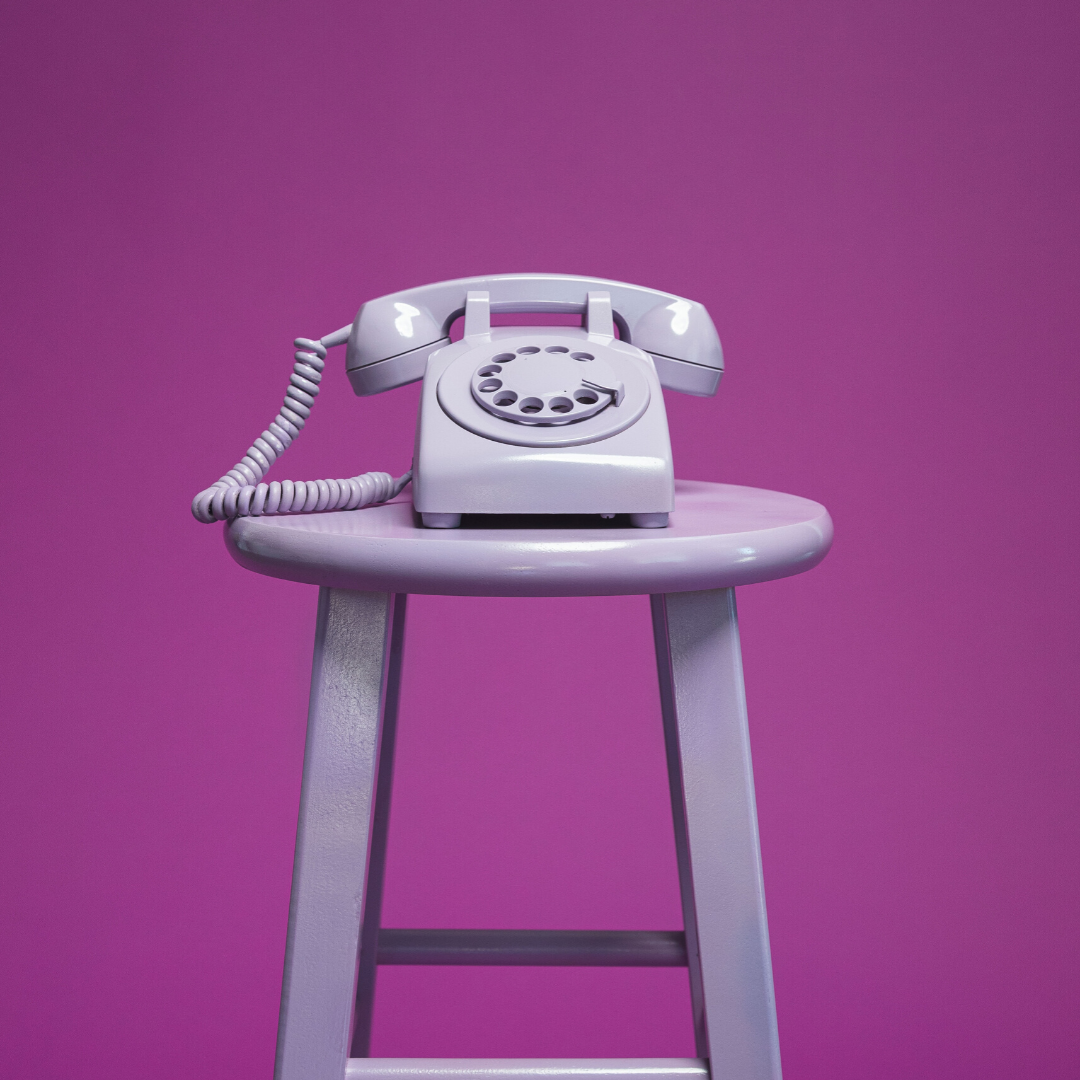
The COVID-19 crisis situation is changing every day, and as an LGBTI organisation you are going to want to keep your audience updated about what specifically matters to them. ILGA-Europe’s strategic communications consultant, Sho Konno, gives his key advice for communicating at this time.
As the situation with the novel coronavirus (COVID-19) develops on a daily basis, one of the most important tasks for any LGBTI group is to communicate with our community and other audiences. This guide is about how to take those first steps for your initial communication, and where to get more support afterwards, as clear communication will be needed regularly through this crisis.
Please note: this is not a guide about how to make decisions or adapt your activities during the COVID-19 crisis (click here for our tips on ‘rethinking 2020 for activist organisations). Rather it’s a guide about how to clearly communicate the decisions you’ve made and the activities you have become engaged in during this time.
1. Be brief
- Give a snapshot of what you are going to tell us. Does the title of your post just say ‘COVID-19 info’ or does it tell us what that info is about? Does the first line of your email tell us what is in the rest of the email? It’s important to give people a clear snapshot of what you are going to say.
- What’s new and what do we need to know first? If someone doesn’t scroll down, will they see your main message? Health and safety generally goes first.
- Be specific about and for the LGBTI community. Your audience is not expecting you to replicate general advice from the government to everybody. Unless you are prevented by specific threats, address lesbian, gay, bisexual, transgender and intersex people explicitly with the specific messages you have for them and their communities.
- What kind of updates will you give and where can we find them? It is sadly unlikely you will only have to communicate once, so set the expectation now that you will give regular updates, and tell people where they can find them.
2. Focus on the facts
- Give specific directions based on the local health guidance. Do not assume everybody is watching the news as much as you are, always link to the official guidance and then explain what that means for your context.
- Tell people what you do not know yet. Do not be tempted to think ‘we haven’t decided this yet so let’s just leave it out’. It is better to at least acknowledge that something is important to your audience but you do not have details yet, and that you will update them.
- Put a date on it. If it is a web page, for instance, it might be read at a later date. With a daily changing situation, it’s important to clearly date your communication, so people are clear whether it’s up-to-date.
- Don’t over-promise. For example, saying that every activity will happen “after things go back to normal” or will be transferred online may set false expectations. If you communicate your hopes but do not make promises, your audience should understand.
- Be clear why they should click on links. Linking to other resources is good, but if you are sending people to other sites then give them a quick explanation of what you are recommending in it. Don’t pass the work to your audience.
3. Stay human
- Talk about ‘we’ and ‘us’. You do this work and your audience supports you because of solidarity and a desire to fight for people. This is as good a time as any to simply say that and remind yourself and your audience about our shared purpose.
- It’s okay to say things are difficult. Whether it is funding, logistics or your team’s own health, do not feel like you have to ‘appear strong’. Recognising challenges and saying how you hope to deal with them is what true resilience looks like. Your audience will empathise and may have ideas of how to help.
- A personal touch is great. You are a human writing this communication, so allow yourself to include a bit of your personality or humour, like this LGBT foundation, which added a message of trans rights to hand-washing advice.
4. Test it from your audience’s perspective
- Get at least one person who did not make the draft to read the draft. Taking different perspectives on board can lead to clearer content.
- Imagine what steps your audience has to take. You are focusing on drafting the web page, but how do they get to it? What if they actually first find you through your website’s homepage, the voicemail on your office phones, or the description text on your Twitter/Instagram bio? And how are you proactively making sure it reaches the people who need to see it?
- Repeat one core message, even if you change the details. You may have updates to your webpage in future, or specific announcements to make on social media, but remember that for some of your audience this will be the first message they see, so try to always include a repetition or link to your original core message. And if you change that core message, update it in case someone only sees the first message (also see ‘Put a date on it’ earlier).
Here is a good example of COVID-19 communication from a small organisation:
What makes it good?
- It’s very short! Bullet points help our eyes to scan it quickly.
- There is specific direction on how the local official health guidance relates to their activities.
- It tells people what they probably want to know most urgently (‘Do I still have to submit by the deadline?’, ‘Do I have to give a refund for the cancelled event?’)
- It tells people where to get updates and how to keep in contact.
- It still includes a human message, but at the end, instead of a long philosophical piece of writing that you have to read past to get to the details.
What could be better
- The ‘COVID-19 Updates’ webpage that this newsletter links to lists all updates chronologically. This is helpful if someone returns to the page, but what if someone is reading it for the first time? Try to make sure any ‘COVID-19’ message or link has your main message summarised or linked to right at the top.
Maybe we will go ‘back to normal’ soon, but we should be prepared for a ‘new normal’ for potentially months to come. After you have made your initial communication, you can set up processes and strategies that will prepare you better for this crisis and other crises in future. Here are some resources that will be helpful in the longer run:
- A coronavirus crisis comms best practice guide (Prosper Strategies) Includes risk assessment, internal comms, and stakeholder/employee/services communication.
- Crisis comms for charities (Charity Comms) A more general guide with practical steps for preparing for future crises, especially ones that affect your reputation.
- Dealing with disinformation (Blueprints for Change) A crowd-sourced Google Doc with the latest tips from campaigns facing deliberate disinformation.
COVID-19 and digital security: How LGBTI activists can safely work online
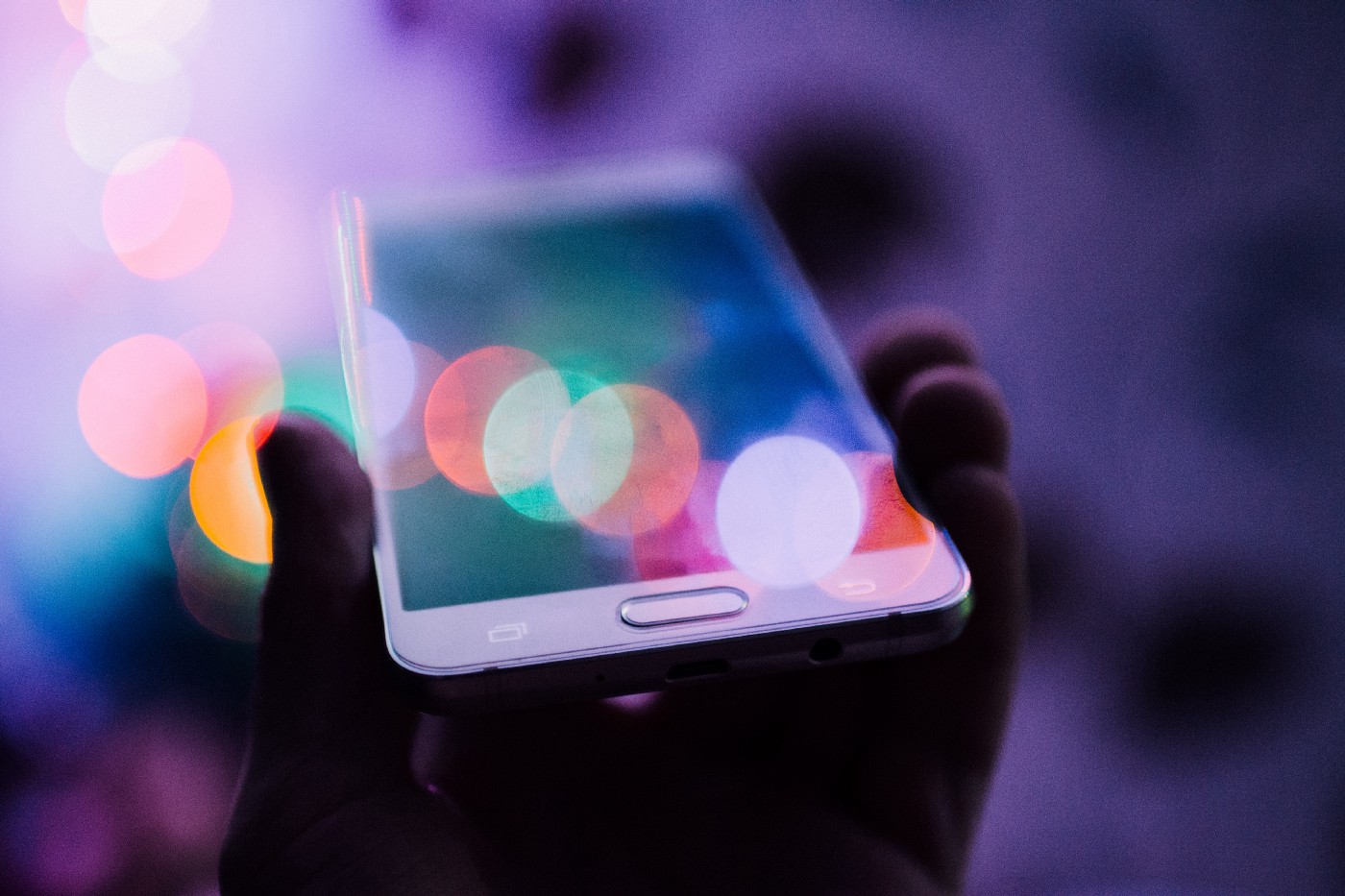
While the opponents of LGBTI equality might also be overwhelmed with COVID-19 and focus their attention less on LGBTI groups right now, the digital footprints we leave today will still be around for a long time to come, which could make us more vulnerable after the crisis is over. So, now that most of our activities have moved online, how do we stay safe and secure? Here are tools and tips from the ILGA-Europe Programmes & Policy team.
As the coronavirus pandemic has taken us all by surprise, and we’ve all found ourselves isolating and working from our homes, the ways in which we communicate have drastically changed and we have to adapt quickly. Although many of us were already acclimatised to communicating digitally, moving 100 per cent of our daily work to the online sphere has been challenging in already complicated contexts.
For LGBTI activist organisiations, it is important to keep in mind that safety comes first. While our opponents might also be overwhelmed with Covid-19, the digital footprints we leave today will still be around for a long time to come. The following tips and tools on how your activist organisation and work can move its communication online are lead by the principle of online safety
Here’s how to quickly and safely reshape the work with your team without losing time and resources.
1. Group Communication
For group chats, one-to-one video and audio quick calls, you can use various apps on your cell phone. The following apps facilitate group meetings and here are the safety elements you need to bear in mind:
Remember that some of these apps are linked to your cellphone number. When you have sensitive conversations, you may want to be able to delete conversations for everyone in the app. Signal, WhatsApp, Viber allow you to do that, while Wire also allows you to write self-destructing messages.
You can find detailed information here on these and additional apps.
For longer conversations with your teams, it is probably easier to use apps that are available on your computer or tablet. Most of the following are also available on your phone, but generally harder to operate there.
In case you plan video calls and sensitive aspects may or may not come into discussion, please follow some simple rules:
I. Always set a password to the meeting.
II. Avoid sharing a the link to the meeting in a public online space as anyone who has the link can join the meeting.
III. Ask participants to introduce themselves verbally, preferably with video (later you can mute and/or turn the cameras off).
IV. If you see suspicious participants joining (not responding to questions, sharing unsolicited content, etc.) close the meeting for everyone and start a new one.
For those using zoom, besides the above rules, there are some specific technical aspects that can improve the safety of your calls:
I. Change screensharing to “Host Only”.
II. Disable “Join Before Host”.
III. Disable “File Transfer” so there’s no digital virus sharing.
IV. Disable “Allow Removed Participants to Rejoin” so booted attendees can’t slip back in.
V. Also try to avoid using your personal meeting room for public meetings. If someone gets access to your personal meeting ID and the personal link, they could potentially then join any meeting in the room at any time.
Long, but as we say, better informed than hacked.
2. Project Management Tools
To work collaboratively with your teams on multiple projects with mixed requirements and deadlines, you could try one of these project management tools:
Slack — A virtual office which works well for prompt communication on various work projects with separate channels that can be encrypted or password protected.
Asana — Good for a growing team, it offers calendars, joint and individual task management, file sharing, workload indicator, etc. This is probably useful if your team is used to working online already, a bit harder to get used to quickly than Slack.
Trello — A good tool for planning and keeping track of steps in project implementation, good with deadlines and good for small teams!
Wrike — Similar to Asana, this is good for complex projects with long timelines, conditionality of tasks and timeframe.
Keep in mind that these tools are cloud-based. This means that they are quite secure unless at least one person has their password breached. Two-factor authentication and regular changing of strong passwords are a must.
The second consideration is that these tools are not free of charge, but this period is a good opportunity to explore their fee offerings. Then you can decide if you want to continue using some of them.
3. Collaborative and Cloud-storage Tools
If you plan to work together with your colleagues on documents, these collaborative work and cloud storage tools may be handy. We do not recommend Dropbox as it is not a safe tool to use for permanent storage. Remember always that safety comes first!
Google Drive — Well known and understood, Google Drive works well, but is not the safest option. If you have security concerns, consider two-factor authentication. Here’s how to set it.
The Box — Similar to Google Drive and Dropbox, but considerably safer.
4. Password Changing
Changing passwords is a good safety tool, but constantly changing and saving them, especially with all the current anxiety, might be challenging. Here are some tools to generate and safely store your passwords:
1password.com — Features cloud-based database storage, meaning it is less likely that it will be hacked on your computer, and can be accessed around the world (if you have a good Internet connection).
Keypass.com — A software-based database of passwords. Can be used offline, but it will be stored on your laptop and/or smartphone.
You can find here more general tips on how to set your workspace at home, and security considerations in a report produced by Frontline Defenders here.
Funding opportunity to support D/deaf and disabled LGBTI activism in Europe and Central Asia
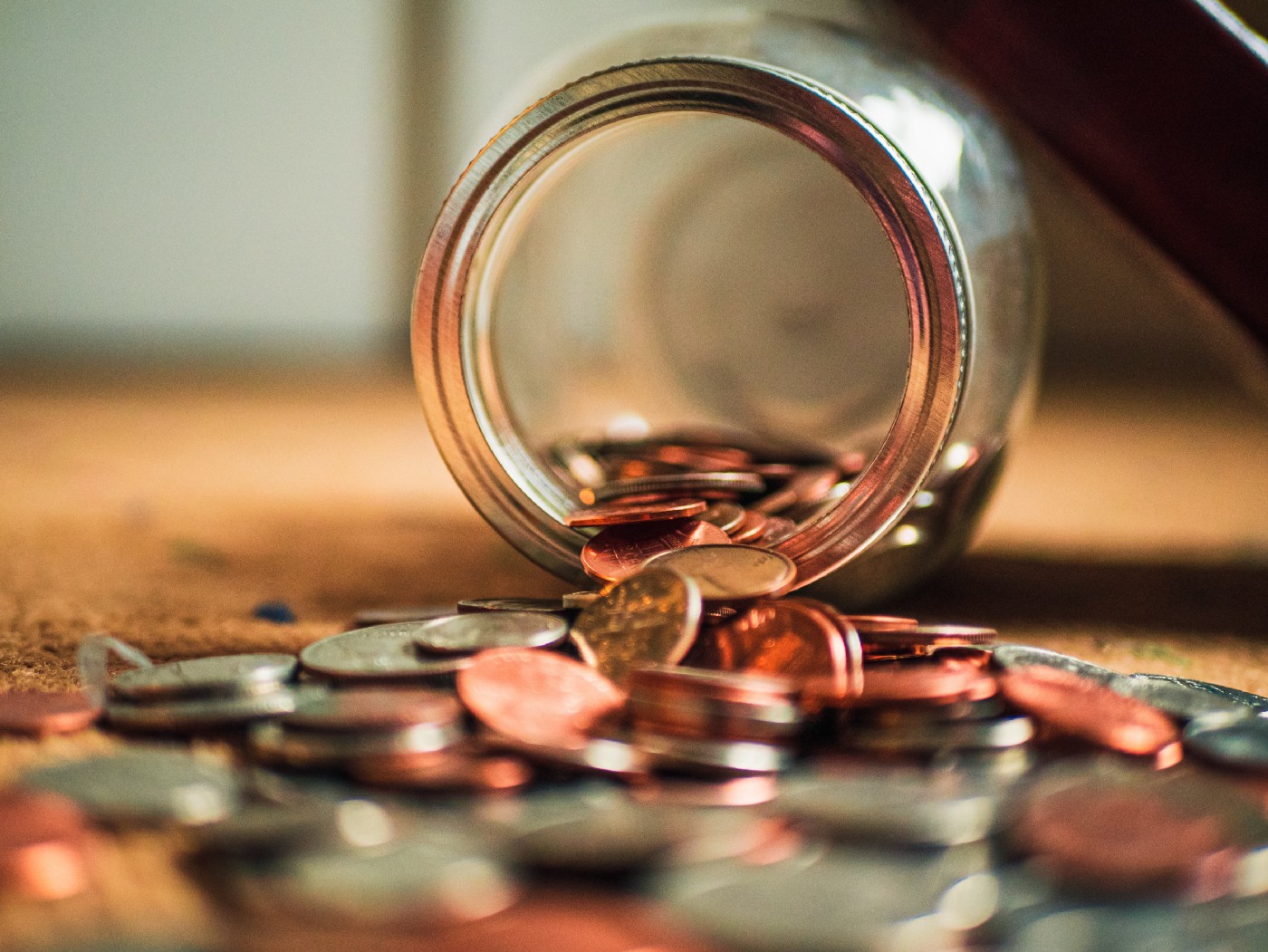
ILGA-Europe is inviting organisations and groups from Europe and Central Asia to apply for this new funding opportunity to support D/deaf and disabled LGBTI activism*. The last day to submit your application (deadline) is Monday 10 February 2020.
D/deaf and disabled LGBTI people face specific barriers and challenges when accessing human rights. Accessibility and inclusiveness have increasingly been part of LGBTI groups and organizations’ conversations and practices. Yet most D/deaf and disabled LGBTI people continue to be marginalised in LGBTI movements across Europe and Central Asia. At ILGA-Europe, we want to contribute to changing that.
In November 2019 we hosted a gathering of 11 D/deaf and disabled LGBTI activists from nine countries throughout the European region. Priorities identified during the gathering are around: connecting voices and ideas and visibility of D/deaf and disabled LGBTI people, educating LGBTI and disability organisations, campaign and advocacy for legal and policy changes. A clear interest to work at an international level was also expressed as well as the importance of having D/deaf and disability LGBTI people leading on this work.
In line with the conclusions of the gathering and as part of our work to support the LGBTI movement in Europe and Central Asia, ILGA-Europe is now inviting you to apply for this new funding opportunity to support D/deaf and disabled LGBTI activism. The last day to submit your application (deadline) is Monday 10 February 2020.
Do not hesitate to contact us via email at valeria@ilga-europe.orgor by calling 0032 2 609 56 52 (Valeria’s number at ILGA-Europe):
- If you have doubts or questions related to this funding opportunity.
- If you need support with your application.
- If you will not be able to apply but you would still like to be informed about this work.
Priorities for this funding opportunity:
1) With this funding we will support projects that prioritize:
- Connection: D/deaf and disabled LGBTI people voices and ideas are more connected and less isolated;
- Legal and policy change: Through advocacy work there are fewer barriers to D/deaf and disabled LGBTI people enjoying their human rights;
- Visibility: D/deaf and disabled LGBTI people experiences and activism are more visible.
2) An additional priority is about the LGBTI (and disability) movement becoming more aware and accessible for D/deaf and disabled LGBTI people. With this fund we want to support projects that:
- Create results that remain also after the fund is finished.
- Is part of a longer process of developing D/deaf and disabled LGBTI activism in Europe and Central Asia.
- Create knowledge, tools, practices that can be used by other activists for similar purposes;
- Keeps into account a regional and cross-country perspective.
Activities that can be supported:
Examples of activities that can be included in project proposals are:
- Needs assessment or planning activities for your organisation or group;
- Community activities, online or in person, to meet and engage with more D/deaf and disabled people;
- Advocacy work around policy or legal change that is important to D/deaf and disabled people;
- Communication activities and campaign online and offline;
- Development of educational materials such as publications or trainings;
- Meetings or events to build alliances or learn from each other;
- Any other activity that is in line with the priorities of this fund;
- Etc.
Project proposals must be different from any other project you have already in place. ILGA-Europe wants to make the learning of these projects available for LGBTI activists in Europe and Central-Asia. As such, we expect applicants to be willing to share their learning with us.
Examples of costs that you can include in your project are: travel costs such as flight, train or bus tickets; accommodation costs for instance in a hotel; meals costs; food for coffee breaks; cost to rent a room for an activity; costs to pay for salaries of those involved in the project; costs for design or printing publications or other materials; costs to ensure accessibility of activities such as sign language interpretation, speech to text captioning; costs to cover reasonable adjustments when it comes to accommodation, transportation or operating costs linked to the project (for example a share of your organisations rent, internet bill or stationery) among others.
Examples of costs that you cannot include in the budget are: alcoholic drinks; purchases of equipment (such as laptops, projectors or similar items) or purchases of real state among others.
Who can apply for this funding opportunity?
Registered organisations led by D/deaf and disabled LGBTI activists are encouraged to submit project proposals; proposals from LGBTI organisations working on the intersection of LGBTI and disability are also eligible.
We also welcome projects where an unregistered group operates with the support of a registered organisation. If your group is not registered (you do not have a bank account, etc.) you can partner with a registered organisation and have them applying with you and supporting the project administration.
We will also welcome proposals for projects to which ILGA-Europe would contribute part of the funding. For example, if your group is part of an organisation which is in position to develop a larger project and fund part of it, ILGA-Europe would consider being a co-funder to this project. The one requirement is that this would be supporting important activities that would not happen without this funding.
No matter what form your activities take (registered organisation or informal group) you need to have some experience in running projects, including financially. In case, you doubt on applying, please do not hesitate to reach out to us as we can support you with your assessment. ILGA-Europe also provides support in grant management in the form of webinars and meetings aimed at explaining the financial management requirements for the project.
Applicants must be based in the 54 countries of Europe and Central Asia
Budget available:
We plan to make up to 5 grants in the range of 3.000€-5.000 €. Projects can last a maximum of 6 months and have to finish before the 15 October 2020. For this call, ILGA-Europe has a total budget of 17.000 €.
How to apply for this fund:
You have to fill in this application form by 10 February 2020; this is the preferred option: https://www.surveymonkey.com/r/DdeafanddisabledLGBTIactivism
You can also fill in the same application form in word format and send it to this email address: valeria@ilga-europe.org
In order to promote accessibility for all we also welcome video applications. This is limited to applicants that do not have the capacity to write an application. Video applications need to answer the same questions as written applications so check the whole application form before and make sure you address those questions in the video. The video must be a maximum of 10 minutes. Please use .mp4 and .mov formats. We appreciate and encourage videos that are “Selfie-style.” You can record yourself looking directly at your smartphone, tablet or computer. No special effects, labels, or editing are required. Videos will not be accepted if we cannot see who is speaking on behalf of the organization. We will require organization’s to submit contact information and the budget template in writing.
You can send us the video application via WeTransfer or sharing a link to a Dropbox or Google Drive folder. Please send the link to this email address: valeria@ilga-europe.org. Do not attach the video to the email as the size will be too large and it will not go through.
Applications written or video must be submitted in English. The last day to submit your application (deadline) is Monday 10 February 2020.
What is going to happen and when?
- The last day to submit your application (deadline) is Monday 10 February 2020.
- We will review applications and decide on projects to support by 24 February 2020.
- We will inform all applicants about the result of the review via e-mail or other contacts provided in the application.
- For the project selected, we may ask additional questions or clarifications to the applicants. Together, we will also compile a more detailed budget.
- Once all these steps are taken, and in case we have answers to all the questions and doubts, the project will receive final approval and we will send you the contract together with a Payment Request Form (PRF) We will work so that all contracts are signed between the 1 of April and the 30 of April. Activities might start from the day in which the contract is dated
- For this funding, we will send you the 80% of the budget within 4 weeks of signing the contract and receiving the PRF. The remaining 20% is to be transferred at the end of the project once the final narrative and financial reports are submitted and approved.
- No matter when the contract is signed the project activities must finish by the 15 of October 2020.
- By 30 October 2020 you will have to submit a final narrative and financial report. We will review the reports and ask additional questions if needed.
- During the 5 or 6 months of project we will have regular contacts (every one or two months).
What will ILGA-Europe do and how you can connect with us:
- If you are interested in this opportunity and you have questions or doubts please contact us and we will do our best to support.
- Once projects are selected we will work with those involved to answer questions or doubts, look together at the planning for the project and to revise the budget if needed.
- When project activities will be implemented we will be available to support in case you experience problems or need suggestions on how to go about some aspects of your work.
- We will work to collect learning from the work done under this funding and we will circulate this knowledge for instance with articles, educational materials, online learning sessions among others.
Do not hesitate to contact us via email at valeria@ilga-europe.org or by calling 0032 2 609 56 52 (Valeria’s number at ILGA-Europe):
- If you have doubts or questions related to this funding opportunity.
- If you need support with your application.
- If you will not be able to apply you would still like to be informed about this work.
6 things you should know when LGBTI community organising
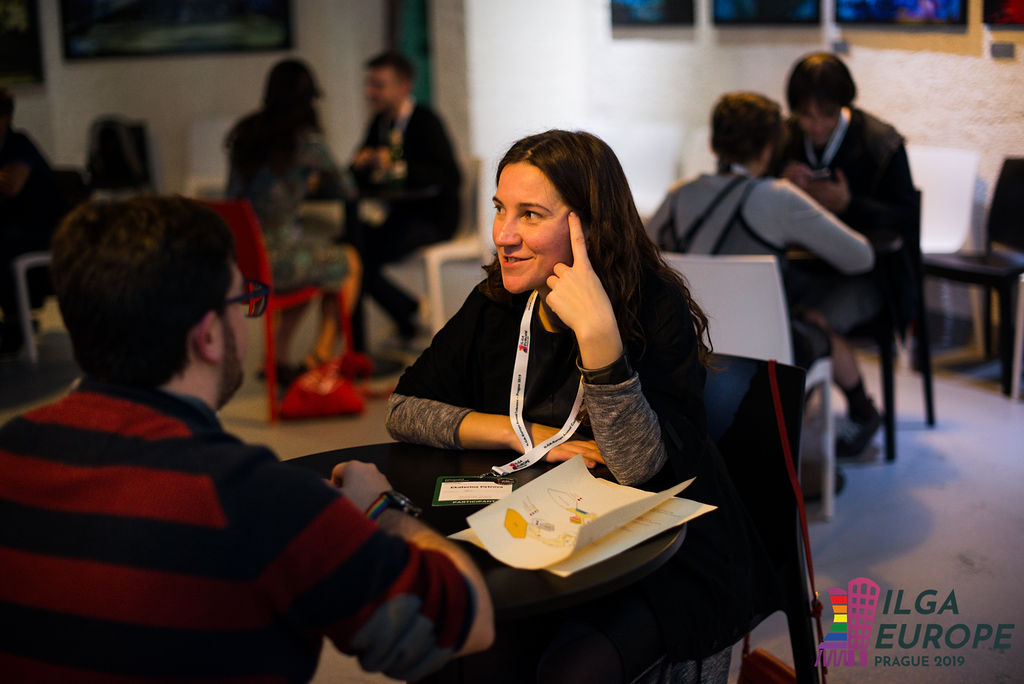
Are you an LGBTI activist who will be empowering your community as an organiser in 2020? Here are some key ways to make sure you get it right!
Organising together is how people who experience exclusion, discrimination and violation of their human rights bring about changes in their lives. Community organisations grow and evolve from individuals organising activities together. As people continue to organise, connect and support with others, to link-in with the activities becomes a key feature of community organising.
Community organising also works the other way around — the more LGBTI people are aware, engaged, and mobilised, the more LGBTI individuals, groups and organisations are enabled in their work towards change.
If your resolution for 2020 is to empower your community as an organiser, some values and principles underpinning community organising within the LGBTI movement include:
- Respect for individual’s perspectives and for difference of opinion
- Inclusion and empowerment of those who wish to join
- Outreach to those who may be challenged in participating
- Working for collective as well as for individual benefits
- Ownership and decision making by the people involved
- Accountability to others for actions taken
- Transparent representation
- Accessible and safe spaces — both physically and psychologically.
Here are six key practices to keep in mind:
1. Communicate with clarity
Use jargon free-communication about what you are doing, when, where, why. People must understand to get engaged and feel welcomed.
2. Make sure spaces are accessible
It’s important to use accessible physical spaces that accommodate different abilities, financial resources, transportation and safety. Think about where you are organising and make sure that people can reach the place with public transportation, or that there are not architectural barriers and security of participants is protected.
3. Facilitate people to take part
Think about the time and the day that may facilitate people joining. For example, if you want to reach out to youngsters in school in the morning they may be in school, and in the evening not everyone could be free to go out.
4. Ensure that cliques don’t form
You may organise group activities based on people’s shared identity, such as intersex or trans groups. However, you may also want to consider bringing different groups together to make sure that a broader sense of community and solidarity is cultivated.
5. Don’t impose activities
Make sure that activities and future direction are based on what people want or need and are not imposed. This will help to create a sense of ownership of the space and of the work done to ensure accountability, and it will likely contribute to cultivate leadership and mobilisation. In practical terms this may mean creating a space to discuss issues and desires; plan together or open the space for planning; but also work on social change decisions, progress, plans, etc. to the widest group possible.
6. Support different interests
Different people have different needs and desires and should be encouraged to organise based on that. Diversity of activities will most likely lead to more people participating and feeling that their necessities are met.
At ILGA-Europe we believe that for social change towards acceptance of diversity and equality to happen, LGBTI people and communities must be at the core of the work. Want to know more? Have a look at our resource Organising for change: resources to support LGBTI community organising work by Patricia Prendiville (Equality Works) and Valeria Santostefano (ILGA-Europe).
Organising for change
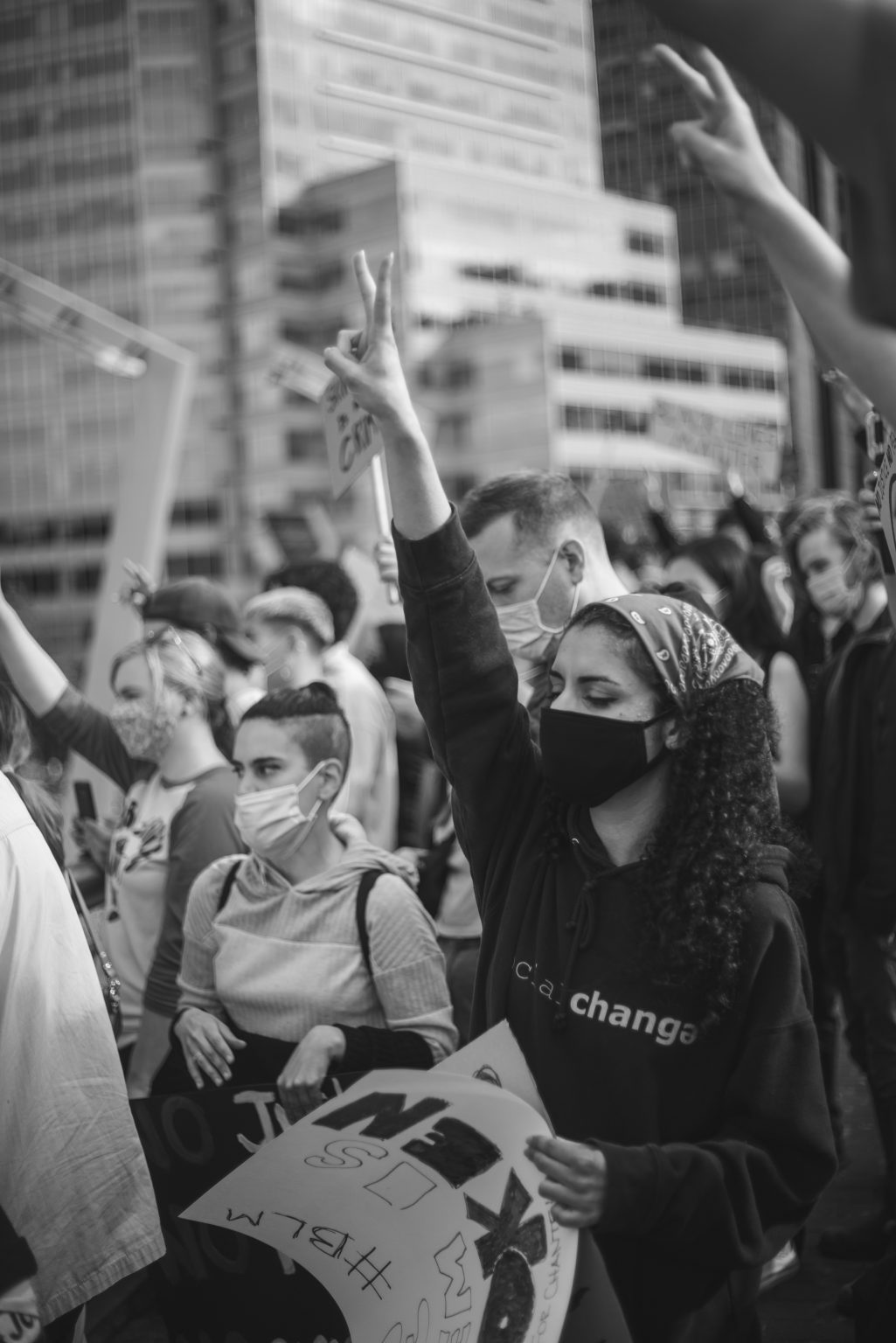
Resources to support LGBTI community organising work
Community organising is not an easy task, and LGBTI groups and organisations – sooner or later – struggle with such work. It requires determination, strengths, resources and leaders/ facilitators. In our experience, successful and sustainable community organising is a matter of vision and strategy, but it is also about planning and having the right skills.
With this material ILGA-Europe want to continue developing a framework, vision and strategy for LGBTI community organising work in the European region.
In this resource you’ll find what we know as an organisation in this moment. We hope that this document will trigger more thinking and learning in the LGBTI movement and we’ll be happy to check this information with more experiences from LGBTI community organisers.